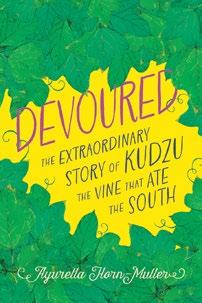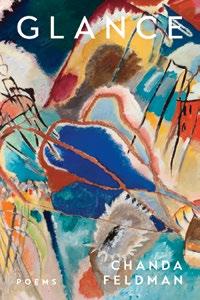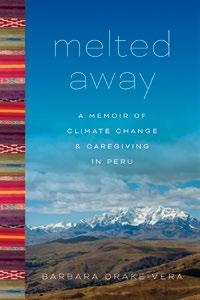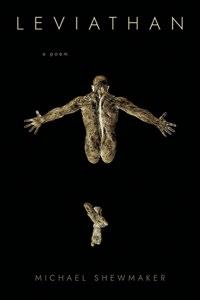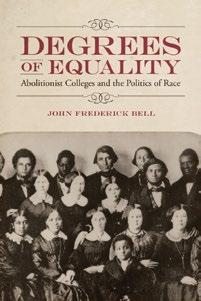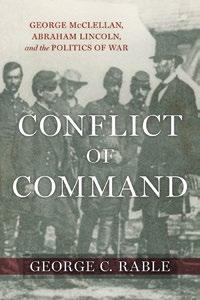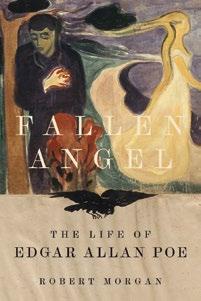

LSUFALLPRESS 2025
Louisiana State University Press Books for Fall 2025
CONTENTS
Subject
African American History / 7, 14
Biography / 21–22
Civil War / 9–11
Educational History / 12
Essays / 26–27
European History / 20
Foodways / 2–5
Gaming / 19
Gender Studies / 15, 19
History of Higher Education / 16
Legal Studies / 6
Literary Studies / 21–23, 25–27
Louisiana / 1, 3, 7–8, 16
Memoir / 24
Military History / 16
New Orleans / 1, 4–5, 18
Performing Arts / 18
Poetry / 28–35
Race Relations / 12
Religious Studies / 14–15
Slavery and Abolition / 6
Southern History / 8, 10, 13, 15
U.S. History / 9, 11, 17
Urban Studies / 13
World War II Studies / 17
Author
Andrews, Performing New Orleans / 18
Bakken, Driving the Beast / 33
Barbarese, Inventions on the Brink / 26
Byrd, Slavery, Segregation, and the Second Founding of Rice University / 12
Carter, By Stone and Needle / 35
Chamberlain, New Orleans / 1
Chamberlin, Uncivil Guard / 20
Drez, The Long Purple Line / 16
Duggan, Performing New Orleans / 18
Egan, The Furies / 28
Epstein, Constellations / 29
Galvin, In Plenty’s Woods / 31
Gargaillo, Queer Allusion / 25
Gill, Chef Celeste’s Louisiana Kitchen / 3
Gilmore, Self-Emancipation on the High Seas / 6
Gonzales, Return of the Lost Son / 24
Goodspeed-Chadwick, Lives Revised / 22
Gudmestad, The Devil’s Own Purgatory / 11
Hardwig, How Cormac Works / 23
Hazelton, Generic Husband / 32
Hess, Civil War Cavalry / 9
Jones, A Feminist, Queer Adventure Line / 19
Livesey, Voices of the Formerly Enslaved in Louisiana / 7
McDaniel, Slavery, Segregation, and the Second Founding of Rice University / 12
Meyers, Forty-Three Ways of Looking at Hemingway / 21
Peller-Semmens, Unreconstructed / 8
Reed, The Ramos Gin Fizz / 4
Reiner, The New Rules of Dining Out / 2
Rohrer, Daughters of Divinity / 15
Scafidi, The Appalachian Sea / 34
Shiver, War Fought and Felt / 10
Skloot, Dancing in the Cosmos / 30
Souther, Sandhill Cities / 13
Strachan, The Obituary Cocktail / 5
Tobin, The Odeon / 27
Treadwell, Tongues of Fire / 14
Williams, The Road to Cisterna / 17

Front cover: Adobe Stock/mysh
New Orleans A Concise History of an Exceptional City
CHARLES D. CHAMBERLAIN
Intended for general readers, Charles D. Chamberlain’s New Orleans: A Concise History of an Exceptional City offers a broad, reliable overview of the city’s history. Although many excellent books are available that focus on specific eras in the Crescent City, this book is the first fully inclusive scholarly history that is engaging and easy to follow.
In addition to a general historical narrative, each chapter provides a list of relevant historical sites and a carefully selected recipe to make the city’s history come to life through site visits and culinary pursuits. Chamberlain encourages readers to experience the spirit of New Orleans first-hand by exploring its landscape and interacting with its cuisine.
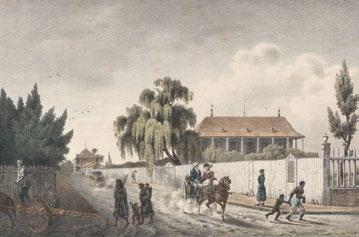
New Orleans: A Concise History of an Exceptional City is a trusty reference for tour guides and a valuable, interactive resource for general readers interested in the fascinating history of one of America’s most unique cities.
CHARLES D. CHAMBERLAIN is a historian, tour guide, museum professional, and musician. He specializes in the histories, music, and cultures of Louisiana, the United States, Latin America, and the Mediterranean Basin. Chamberlain is the author of Victory at Home: Manpower and Race in the American South during World War II, as well as numerous articles on the history of New Orleans music.
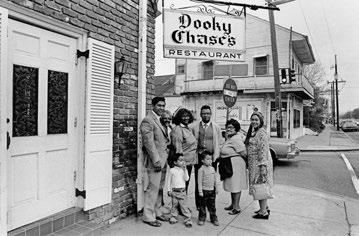
The
outside
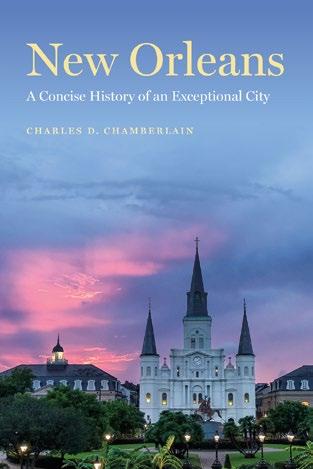
AUGUST 2025
376 pages, 6 x 9, 19 halftones
978- 0- 8071- 8487- 5
Paperback $34.95, ebook available LSU Press Paperback Original New Orleans / Louisiana
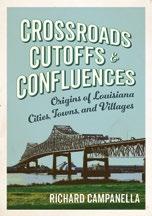
Felix Achille Beaupoil de Saint-Aulaire, Vue d’une Rue du Faubourg Marigny, 1821, Historic New Orleans Collection, 1937.2.2.
Chase family stands
the restaurant, 1960s, Historic New Orleans Collection, 2017.0034.07.
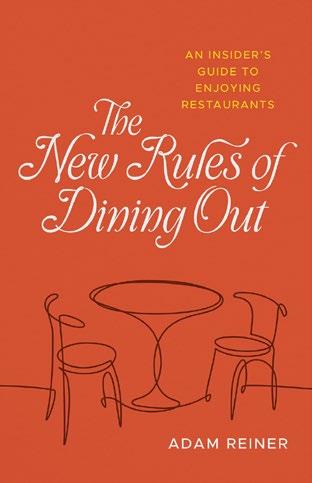
SEPTEMBER 2025
192 pages, 5 ½ x 8 ½
978- 0- 8071- 8504- 9
Hardcover $29.95, ebook available Foodways
The New Rules of Dining Out
An Insider’s Guide to Enjoying Restaurants
ADAM REINER
978-0-8071-6326-9
Hardcover $29.95
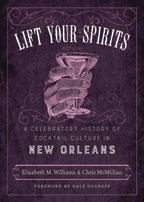
“Adam Reiner brings firsthand experience and insightful conversation on the current state of our restaurant industry, the powerful yet fragile relationship with consumers, and what the future can and should hold for the continued survival and success of our sector. The New Rules of Dining Out covers everything from the evolution of restaurant etiquette to how new platforms of communication have impacted the hospitality world and shape all sides of the experience, from chef to server to diner. This book gives a much-needed perspective: a raw look at the inner workings of what makes for a great dining experience, and the human beings behind the herculean efforts of every meal service.”
—Lee Anne Wong, chef and author of Dumplings All Day Wong: A Cookbook of Asian Delights from a Top Chef
“You might think, ‘I already know how to dine out in a restaurant. I don’t need a user’s manual!’ But as Adam Reiner persuasively argues in this witty and perceptive book, you might just be doing it wrong, and Lord knows we could all benefit from a refresher course. In a perfect world, everyone would absorb Reiner’s spot- on etiquette guidelines, and the experience of dining out would improve for everyone involved—servers, chefs, and customers alike. Pro tip: politeness pays off.”—Jeff Gordinier, Esquire contributing editor and author of Hungry: Eating, Road-Tripping, and Risking It All with the Greatest Chef in the World
“After three decades in the hospitality business, I’ve learned that if you want people to work for you (instead of just with you), you have to show them you’re on their side by collaborating to achieve their goals with yours. That’s the thrust of this book, which functions as a user’s guide for restaurants. If you’re ready to move beyond transactional encounters in these spaces, Adam Reiner shares insider tips for how to build a relationship with the people who animate them (the staff). Beyond new rules for dining, there are so many sage insights that can be extrapolated to navigate a chaotic world with grace, diplomacy, and care.” —Jim Meehan, author of Meehan’s Bartender Manual and The PDT Cocktail Book
ADAM REINER is a food-and- drink writer who worked for more than two decades in New York City’s most popular restaurants, including Babbo, Carbone, and The Grill. His writing has appeared in Eater, Bon Appétit, Food & Wine, and New York Magazine, among other publications.
Chef Celeste’s Louisiana Kitchen
Simplifying Cajun and Creole Cuisine
CELESTE GILL
Chef Celeste Gill began to learn traditional southern cooking from her mother and grandmother at the age of four. Raised in Detroit and trained as a chef in Hawaii, she ultimately chose to make her home in South Louisiana, where she has worked to promote farm-to-table cooking and eating, and to help fledgling chefs build their confidence to make even the most intimidating traditional Louisiana dishes. At the center of Chef Celeste’s practice is support and mentorship for new cooks as they learn to feel comfortable in the kitchen. Chef Celeste’s Louisiana Kitchen continues this work with recipes that are easy to follow, breaking down challenging preparation procedures into manageable directions and simple-to-understand steps. The recipes celebrate the bounty of Louisiana’s native plants and animals, highlighting the use of fresh ingredients, but with
adjustments possible for chefs outside of the state or without easy access to fresh produce and meats. Food is more than sustenance: it can be a refuge for some, therapy for others, and community for all. The simple act of preparing and sharing a meal can forge connections, and this book serves as a bridge to the rich world of Louisiana cuisine.
CELESTE GILL is a chef, caterer, and the owner of 520 Spain, an event venue. As a decades-long mainstay in the Baton Rouge food scene, she has offered food demonstrations at the Red Stick Farmers’ Market since its inception. She has been named Chef of the Year by the American Culinary Association and received the Seafood Award at the Baton Rouge Capital Chefs’ Showcase.

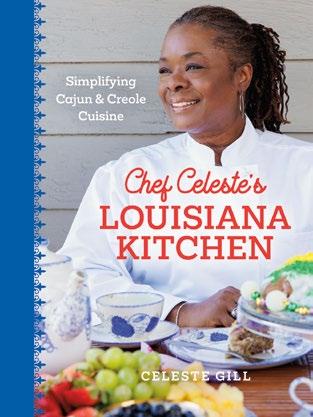
SEPTEMBER 2025
128 pages, 6 x 8, 21 color images
978- 0- 8071- 8497- 4
Hardcover $34.95
Foodways / Louisiana

978-0-8071-7296-4
Hardcover $39.95
Photo by Collin Richie
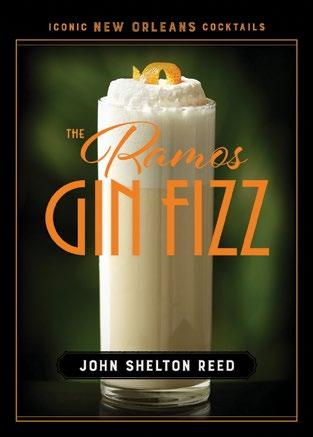
JULY 2025
154 pages, 5 x 7, 15 color images, 14 halftones
978- 0- 8071- 8352- 6
Hardcover $24.95
Foodways / New Orleans
ICONIC NEW ORLEANS COCKTAILS
The Ramos Gin Fizz
JOHN SHELTON REED
978-0-8071-7855-3
Hardcover $24.95
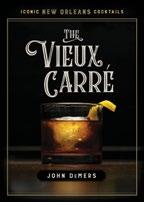
The Ramos Gin Fizz was invented sometime around 1890 by Henry Charles “Carl” Ramos at his Imperial Cabinet saloon in New Orleans. It includes lemon and lime juice, egg white, cream, and orange flower water, and, shaken properly, it becomes a foamy white concoction that has been called “the nectar of New Orleans,” “the Cadillac of Cocktails,” and “the Crescent City’s most notable contribution to civilized tippling.”
This book offers a history of the drink and a biography of its inventor, starting with the early years in which the Ramos Gin Fizz became nationally famous as a New Orleans icon. Although Prohibition almost put an end to it in New Orleans, it survived elsewhere—for instance, at the Cadillac Bar in Nuevo Laredo—and after Prohibition’s repeal, the drink quickly recovered and was once again a New Orleans favorite. In the 1940s and ’50s, it became known as a sophisticated and glamorous drink, popular with celebrities such as Frank Sinatra and Tennessee Williams.
Like many classic American cocktails, the Ramos Gin Fizz was eclipsed by fruity disco drinks in the 1970s and ’80s (although it had a strange shadow life as a California brunch drink). With the cocktail revival at the turn of the century, however, it was again recognized as an American classic.
The Ramos Gin Fizz attempts to reconstruct Ramos’s original recipe using modern ingredients and addresses the question of how and how much to shake the drink, a subject on which there is surprisingly much to be said. Offering recipes for the original drink, a modern version, and many imaginative riffs, this eminently readable book is a musthave for any cocktail lover’s library.
JOHN SHELTON REED is a writer and former college professor who lives in Chatham County, North Carolina. He has written a score of books, innumerable articles, and a few country songs, mostly about the South one way or another.
ICONIC NEW ORLEANS COCKTAILS
The Obituary Cocktail
SUE STRACHAN
“Combine a jigger of history, a wine glass of lore, a dram of joviality, and a splash of absinthe in the Crescent City’s cultural cauldron, and out pours The Obituary Cocktail. Sue Strachan’s deep dive brings forth a virtual parade of fascinating historical events, tempered by the quirky and irreverent aspects of humanity that together have spawned some of New Orleans’s finest contributions to the advancement of western civilization.”—T. A. Breaux, distiller and coauthor of Absinthe: The Exquisite Elixir
“In The Obituary Cocktail, Sue Strachan masterfully stirs New Orleans history, drinking culture, and storytelling into a book as beguiling as it is alcoholic. Through meticulous research and engaging prose, she traces the tale of this legendary drink from Tennessee Williams’s French Quarter of the 1940s to its growing popularity today. Sex, death, and absinthe—this is a must-read for cocktail enthusiasts and New Orleans history buffs alike.” —Andrew Nelson, travel writer for National Geographic and Wall Street Journal, and author of Here Not There: 100 Unexpected Travel Destinations
“The Obituary Cocktail deserves a place at your bar and on your bookshelf. Sue Strachan captures the mystery of absinthe, the bawdiness of New Orleans, and the cultural climate surrounding the drink’s creation. Drinking the cocktail
today allows a sensory window into another time. But Strachan’s book gives us a clarity of history, place, and attitude that makes reading a profitable pleasure. Reading it while drinking an Obituary Cocktail manifests history.”
—Elizabeth M. Williams, founder of the Southern Food and Beverage Museum
In a city known for celebrating in the face of death, it’s no surprise that the funerary tradition is honored by a drink. The Obituary Cocktail is a spirited dive into New Orleans’s bohemian past, chronicling how this cocktail—made with gin, vermouth, and absinthe—became central to mid-twentieth-century café society and New Orleans culture. With detours into the world of secret societies, second-line parades, and celebrations of deathly holidays like Halloween and All Saints’ Day, The Obituary Cocktail gives new life to this unique beverage.
SUE STRACHAN is a social historian, journalist, and author who has written about New Orleans culture, food, history, and current events for numerous publications. Her first book, The Café Brûlot, was published in 2021.
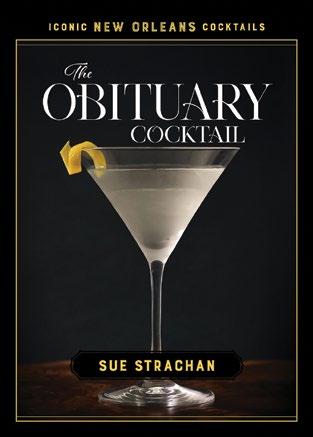
JULY 2025
168 pages, 5 x 7, 21 color images, 4 halftones
978- 0- 8071- 8479- 0
Hardcover $24.95
Foodways / New Orleans
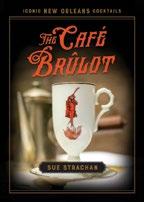
978-0-8071-7604-7
Hardcover $24.95

SEPTEMBER 2025
176 pages, 5 ½ x 8 ½, 10 halftones
978- 0- 8071- 8486- 8
Hardcover $40.00s, ebook available Slavery and Abolition / Legal Studies
Self-Emancipation on the High Seas
The Creole Slave Mutiny of 1841 in Legal and Diplomatic Perspective
WILLIAM C. GILMORE
“In November 1841, enslaved rebels seized a U.S. slave ship and steered it to the British West Indies, where more than one hundred captives gained their liberty. A major diplomatic and legal rupture over property rights and human rights ensued between Washington and London. William C. Gilmore narrates this fascinating dispute and its dramatis personae in succinct, readable, and window- pane prose. The echoes of this remarkable history can still be detected in diplomatic disputes over migrants seeking liberty across international borders.” —Jeffrey R. Kerr- Ritchie, author of Rebellious Passage: The Creole Revolt and America’s Coastal Slave Trade
“William C. Gilmore’s well-researched and elegantly written work combines meticulous legal analysis with a powerful narrative. His study illustrates the details of a case that, for its significance, still resonates in the contemporary debate about international law, fundamental rights, and the very concepts of humanity and justice.”—Giorgio F. Colombo, author of Justice and International Law in Meiji Japan: The María Luz Incident and the Dawn of Modernity
ALSO OF INTEREST
978-0-8071-8371-7
Hardcover $45.00s
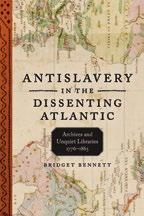
“The uprising aboard the Creole was the most successful slave mutiny in our history, but as dramatic as that moment was, even more intriguing was the aftermath when the captured ship reached the Bahamas, and its captors
claimed their freedom. William C. Gilmore’s penetrating Self- Emancipation on the High Seas reveals how the question of liberty for the enslaved led to international diplomatic complications. A fine work, well- conceived and wellcrafted.”—William C. Davis, author of The Greatest Fury: The Battle of New Orleans and the Rebirth of America
The mutiny by enslaved captives on board the U.S. brig Creole in the fall of 1841 was the most successful high-seas uprising in the history of the American coastal slave trade. It gave rise to a major diplomatic dispute with the British, resulted in extensive litigation in the courts of Louisiana, and was later the subject of an important international arbitration. Self-Emancipation on the High Seas considers these matters in detail and reflects on the significance of the mutiny and its place in the history of slavery and its abolition.
WILLIAM C. GILMORE is professor emeritus of international criminal law at the University of Edinburgh, Scotland, and author of The Confederate Jurist: The Legal Life of Judah P. Benjamin.
Voices of the Formerly Enslaved in Louisiana
The WPA Narratives
Edited, with an Introduction, by ANDREA LIVESEY
“Andrea Livesey has provided a significant contribution to the field of slavery studies, and to scholars of African American history, through her painstaking research into, and presentation of, the distinctive—and distinctly important— Louisiana Writers’ Project interviews with formerly enslaved people. Livesey’s nuanced editorial approach and rich consideration of the interview process and the role of the interviewers, as well as her efforts to piece together folklore, song, and medical knowledge alongside the personal testimony, offer researchers a vital new avenue through which to explore the histories of formerly enslaved people.” —David Stefan Doddington, author of Old Age and American Slavery
In the 1930s, thousands of formerly enslaved Americans were interviewed across the United States as part of the Works Progress Administration’s Federal Writers’ Project. While most of those interviews were subsequently published, Louisiana’s were not. Gathered here for the first time in complete and contextualized form are the full interviews with the formerly enslaved in Louisiana, the transcripts of which had been separated, fragmented, and distributed throughout archives in the state. Reassembled and analyzed by historian Andrea Livesey, the interviews are critical for understanding how Black
Louisianans experienced enslavement but also resisted and built distinctive cultures, communities, and families in spite of it. Equally important is the testimony of how they negotiated emancipation and built relationships after freedom.
Livesey discusses the impact of Lyle Saxon, a wellknown writer who headed the Louisiana branch of the Writers’ Project, and Louisiana poet Marcus B. Christian, who led the segregated Black unit. Other unique aspects of the collection are interviews in Kouri Vini and Louisiana French and descriptions of Voodoo, Marie Laveau, and medicine practiced in Black communities of the era. Livesey invites readers to pay critical attention to how the interviewers may have influenced the narrative preserved in the archive through interpersonal dynamics or editing as they transcribed the interview. Alongside the extended introduction to the volume, this analysis sheds light on the administrative structures and racialized dynamics that initially shaped the interviews.
ANDREA LIVESEY teaches history at Liverpool John Moores University, UK. She holds a doctorate in history from the University of Liverpool.
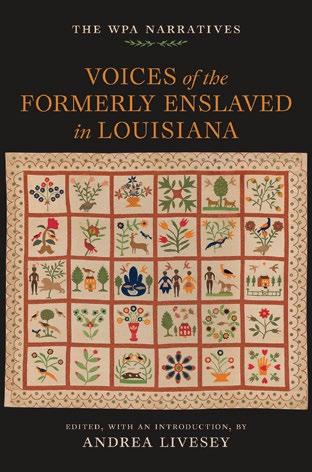
SEPTEMBER 2025
592 pages, 6 ¹∕ 8 x 9 ¼, 12 halftones, 1 line drawing 978- 0- 8071- 8302-1
Hardcover $65.00s, ebook available African American History / Louisiana
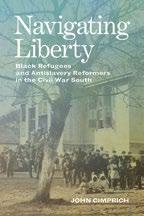
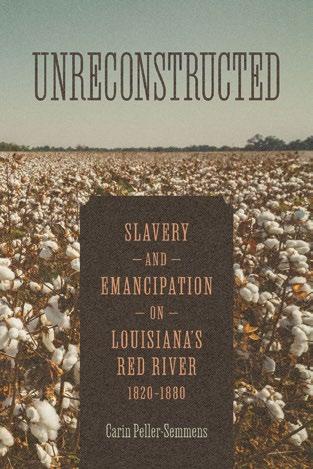
SEPTEMBER 2025
344 pages, 6 x 9, 7 halftones, 1 map
978- 0- 8071- 8467-7
Hardcover $50.00s, ebook available Southern History / Louisiana
Conflicting Worlds: New Dimensions of the American Civil War
T. Michael Parrish, Series Editor
Unreconstructed
Slavery and Emancipation on Louisiana’s Red River, 1820–1880
CARIN PELLER- SEMMENS
Carin Peller-Semmens’s Unreconstructed grapples with the longstanding, systemic effects of white supremacist brutality in northwest Louisiana, highlighting the constancy of racial subjugation in one of the most violent areas of the South. Tracing the commitment of the region’s white slaveholders to racial violence from antebellum enslavement through to Reconstruction, Peller-Semmens unearths the durable ideology of mastery in the Red River region. She demonstrates that white supremacy and vigilante violence were slaveholding recloaked, and became effective, calibrated tools of political, social, and economic control during Reconstruction. White supremacist violence—demonstrative, controlling, and visceral—attempted to redress mastery and subjugate and subdue newly emancipated Black individuals, imposing parameters on freedom.
Unreconstructed shows that white violence and racial control were foundational elements of the regional ideology and identity that Reconstruction galvanized. This ideology of mastery transcended class, creating a shared ethos steeped in racist be-
havior that remained crucial to postwar conceptions of white selfhood. Barbarity, harnessed boldly and overtly, formed the apex of a diversified campaign of persistent violence that chipped away at freedpeople’s experience of freedom and resulted in several seismic incidents of racial violence, including the massacres at Shady Grove, Colfax, and Coushatta.
Peller-Semmens’s arguments concerning racial power structures speak to race issues prevalent in America today, contributing significantly to a vibrant discourse on the inheritances of slavery and Reconstruction. Indeed, the implications of Reconstruction violence in this region still reverberate nationwide, making this corner of the South integral to the larger narrative of southern racism, white supremacy, and segregation.
CARIN PELLER- SEMMENS is a historian of nineteenth-century American history educated at Mount Holyoke College, Rutgers University, and the University of Sussex. She lives in Edinburgh with her family.
ALSO OF INTEREST
978-0-8071-8303-8
Hardcover $45.00s
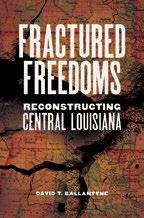
Civil War Cavalry
Waging Mounted Warfare in Nineteenth- Century America
EARL J. HESS
“Boots and saddles, charges and countercharges, flashing sabers, bold young men commanding mighty and everfaithful steeds, dashing romps through the countryside— this is usually what comes to mind when people think of mounted forces in the Civil War. There was, however, much, much more to the story. In Civil War Cavalry, Earl J. Hess once again offers a study that not only informs and entertains but offers fresh perspectives, insights, and analyses that are clearheaded, rooted in extensive research, and refreshingly free of the romanticism that often characterizes the treatment of cavalry. A splendid addition to Civil War scholarship.”—Ethan S. Rafuse, author of From the Mountains to the Bay: The War in Virginia, January–May 1862
“Civil War Cavalry is superbly holistic: both an institutional and operational history, combining a synopsis of the use of cavalry from the ancient world to the nineteenth century with the American experience, especially ideas about how cavalry should fight prior to the Civil War. Nuanced but comprehensive, with remarkable attention to how horse soldiers thought about cavalry’s purpose and tactics, Civil War Cavalry is the best analysis of any nineteenth- century cavalry forces, perhaps the best on any post- medieval mounted forces.”—Samuel J. Watson, author of Peacekeepers and Conquerors: The Army Officer Corps on the American Frontier, 1821–1846
The Civil War produced the largest cavalry force ever raised in American history. In Civil War Cavalry, Earl J. Hess examines that force comprehensively and from new perspectives, challenging standard views of the war’s mounted arm. Hess surveys the organization, training, administration, arming, and mounting of cavalry units and examines mounted troops’ tactical formations and maneuvers. He addresses the nature of cavalry operations, discussing the mounted charge, dismounted fighting, long-distance raids, the varied types of weapons used by troopers, and the difficulty of supplying horses. Hess also brings concepts from the burgeoning field of animal history to argue that cavalry mounts exercised a degree of agency in shaping their role in the large military machine. Civil War Cavalry is a sweeping and innovative history, establishing a new criterion for understanding how Americans waged mounted warfare in the midnineteenth century.
EARL J. HESS is professor emeritus of history at Lincoln Memorial University and the author or editor of twenty-nine books on the American Civil War, including Civil War Infantry Tactics: Training, Combat, and Small-Unit Effectiveness.
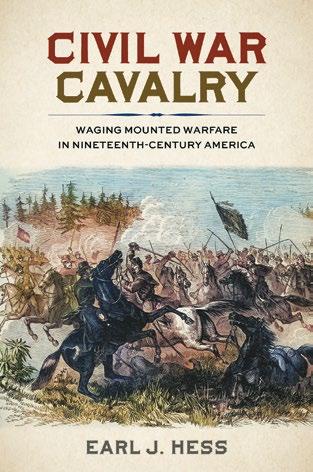
AUGUST 2025
456 pages, 6 x 9, 36 halftones
978- 0- 8071- 8444- 8
Hardcover $49.95, ebook available Civil War / U.S. History
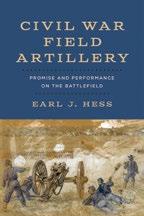
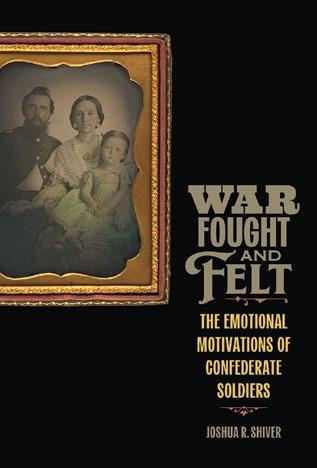
NOVEMBER 2025
248 pages, 6 x 9
978- 0- 8071- 8505- 6
Hardcover $45.00s, ebook available Civil War / Southern History
Conflicting Worlds: New Dimensions of the American Civil War
T. Michael Parrish, Series Editor
War Fought and Felt
The Emotional Motivations of Confederate Soldiers
JOSHUA R. SHIVER
ALSO OF INTEREST
978-0-8071-8383-0
Hardcover $50.00s
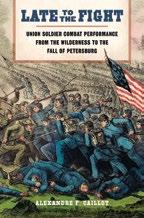
Joshua R. Shiver’s War Fought and Felt advances our grasp of the links between masculinity, emotion, and relationships during the American Civil War. It is the first broadly researched, multidisciplinary, and statistically supported approach to understanding the pivotal role of emotions in the everyday lives of Confederate soldiers. Using a source base of more than 1,790 letters and diaries from two hundred Confederate soldiers from North Carolina and Alabama, it builds upon traditional sociocultural and ideological arguments for why Confederate soldiers fought. Drawing on history, psychology, sociology, philosophy, and neuroscience, it underscores the necessity of examining primal emotions when looking to understand soldiers’ motivations. It argues that the heightened emotions felt by these soldiers drove them to suffer, fight, desert, and willingly die.
Shiver examines the vital role of emotions within the context of soldiers’ relationships with their parents, children, wives, sweethearts, and comrades. These relationships and the emotions they engendered defined Confederate soldiers’ firsthand ex-
periences of war and ultimately redefined the Confederate cause itself. A war that began steeped in ideology ended, for the soldiers, as one fought for the protection and future of one’s loved ones. Shiver demonstrates that the emotionally overwhelming nature of the war forced a tectonic shift in American masculinity in which the prewar emphasis on stoic individualism gave way to an outpouring of emotional expression and mutual interdependence. As a result, Confederate soldiers pragmatically embraced emotional and relational norms that were previously considered taboo.
By placing emotion alongside traditional ideological and sociocultural explanations for motivation, Shiver sheds light on a new area of research that promises to promote a deeper understanding of why the American Civil War was one of the bloodiest, most emotionally influential, and world-changing events of the last two centuries.
JOSHUA R. SHIVER is an upper school history teacher at Westminster Schools of Augusta.
The Devil’s Own Purgatory
The United States Mississippi River Squadron in the Civil War
ROBERT GUDMESTAD
“Combining social history and military history, analysis of naval technology, and incredible storytelling, The Devil’s Own Purgatory gives a history of the Civil War from an entirely new angle. Robert Gudmestad offers us the fullest picture of the war on the western rivers, showing us how the war was won on those churning waterways by ambitious engineers, innovative officers, and tough- as- leather sailors. His writing transports the reader to those muddy channels amidst the flying lead and exploding bombs, while his descriptions of the gruesome nature of warfighting done within those wooden and iron boats will make you thankful you weren’t there. Gudmestad’s book will be an essential fixture on every Civil War bookshelf for years to come.”—Joseph M. Beilein Jr., author of A Man by Any Other Name: William Clarke Quantrill and the Search for American Manhood
“I loved this definitive account of a unique combat force in American history. . . . a naval fleet comprised of bizarre vessels and a disproportionate number of formerly enslaved men. It waged counterinsurgency and environmental war on Confederate ambush squads and their civilian supporters. Gudmestad provides the first social history of the martial men who skylarked and fought their way to victory on the western rivers and the refined officers who tried to reform them.” —Lorien Foote, author of Rites of Retaliation: Civilization, Soldiers, and Campaigns in the American Civil War
“The Devil’s Own Purgatory is a wild ride through diseaseinfested swamps, floating contraband camps, tinclads’ boiler bombs, and drunken melees. Gudmestad’s prose had me turning pages like a novel. His book is social- military history at its best.”—Andrew Fialka, author of Hope Never to See It: A Graphic History of Guerrilla Violence during the American Civil War
The Devil’s Own Purgatory is the first complete history of the Union navy’s Mississippi Squadron, a fleet that prowled the Mississippi River and its tributaries during the American Civil War. The squadron battered Confederate forts, participated in combined operations with the army, obliterated the Confederate fleet, protected Union supply lines, fought a river-based counterinsurgency war, raided plantations, and facilitated the freedom of thousands of enslaved people.
ROBERT GUDMESTAD is professor of history at Colorado State University. He is the author of A Troublesome Commerce: The Transformation of the Interstate Slave Trade and Steamboats and the Rise of the Cotton Kingdom.
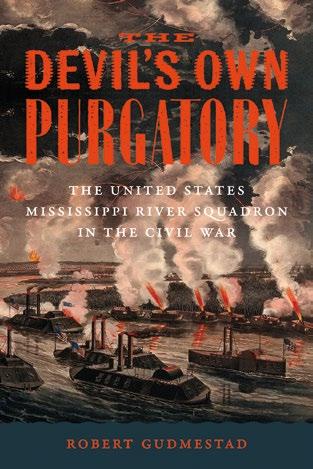
NOVEMBER 2025
312 pages, 6 x 9, 11 halftones, 3 maps
978- 0- 8071- 8491-2
Hardcover $50.00s, ebook available Civil War / U.S. History
Conflicting Worlds: New Dimensions of the American Civil War
T. Michael Parrish, Series Editor
Published with the assistance of the V. Ray Cardozier Fund ALSO
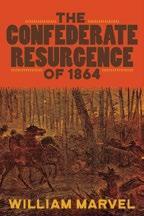
978-0-8071-8243-7
Hardcover $49.95
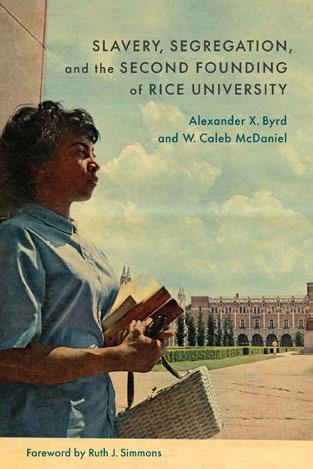
Slavery, Segregation, and the Second Founding of Rice University
ALEXANDER X. BYRD and W. CALEB McDANIEL
Foreword by RUTH J. SIMMONS
OCTOBER 2025
424 pages, 6 x 9, 19 halftones, 4 color images, 2 maps
978- 0- 8071- 8442- 4
Hardcover $39.95, ebook available Race Relations / Educational History
ALSO OF INTEREST
978-0-8071-8177-5
Hardcover $50.00s
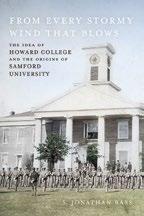
During the first quarter of the twenty-first century, more than one hundred institutions of higher education in the United States launched projects to study and share their histories concerning slavery, segregation, and racial injustice. Slavery, Segregation, and the Second Founding of Rice University joins these wider efforts. Authored by award-winning historians Alexander X. Byrd and W. Caleb McDaniel, the book engages questions specific to Rice’s history as the last major private research university in the country to begin desegregation. Although Rice did not open its doors for classes until 1912, it was connected to the history of slavery through the life of its first founder and namesake, William Marsh Rice, whose fortune was deeply intertwined with the enslavement of Black people.
Byrd and McDaniel place the history of one of the nation’s most renowned universities within a longer and larger context, showing that desegregation required changes to Rice so fundamental that they amounted to a “second founding” of the school. Following the story from slavery through segregation to the second founding, they highlight pivotal points of intersection between the history of Black Houston and the history of Rice University, revealing the seldom acknowledged roles of Black students, Black communities, and HBCUs in creating change at and around Rice. Their study challenges readers to consider anew who counts as
a university’s founder—a question relevant to ongoing discussions about statues, naming, and the history of higher education. They also reveal what higher education institutions do at their best: create new knowledge and forge solutions to trenchant social problems, thus providing guidance for those committed to doing the valuable work of the “second founding” at colleges and universities today.
ALEXANDER X. BYRD is associate professor of history and Vice Provost for Diversity, Equity, and Inclusion at Rice University. He is the author of Captives and Voyagers: Black Migrants across the Eighteenth- Century British Atlantic World, which won the Wesley-Logan Prize.
W. CALEB M c DANIEL is the Mary Gibbs Jones Professor of the Humanities and professor of history at Rice University. He is the author of Sweet Taste of Liberty: A True Story of Slavery and Restitution in America, which won the Pulitzer Prize in history.
RUTH J. SIMMONS , who grew up in Houston, is a former president of Smith College and Brown University, where she established the University Steering Committee on Slavery and Justice. Simmons was most recently president of Prairie View A&M University, a historically Black university.
Sandhill Cities
Metropolitan Ambitions in Augusta, Columbus, and Macon, Georgia
J. MARK SOUTHER
“In this rigorously researched and nicely narrated book, J. Mark Souther has given us portraits of three mid- sized cities in the middle of Georgia. It is a story of ‘effervescent boosterism’ and its disappointments, of the gap between image and reality, and of civic ambition and its limits. There are important lessons here for cities all over the country that find themselves in the shadow of a larger metropolitan cousin.”—Steven Conn, author of Americans against the City: Anti- Urbanism in the Twentieth Century
“A model of comparative history, Sandhill Cities reminds us that the twentieth- century urban South was more than the experience of Sunbelt notables such as Atlanta, Charlotte, and Houston. By juxtaposing the development of Augusta, Columbus, and Macon, Sandhill Cities reveals that boosters in mid- sized cities regularly articulated a metropolitan vision for their cities but struggled to realize those goals.” —LeeAnn B. Lands, author of Poor Atlanta: Poverty, Race, and the Limits of Sunbelt Development
“Mark Souther is among the nation’s most eminent urban historians. In Sandhill Cities, he tells a complex, important story of urban boosters in Augusta, Columbus, and Macon, Georgia, as they sought to emulate Atlanta’s fantastic growth, starting in the 1900s and extending to the 2020s. The book is conceptually sophisticated, lovingly written, and richly documented.”
—Mark H. Rose, coauthor of A Good Place to Do Business: The Politics of Downtown Renewal since 1945
“The American South is littered with small cities that make you wonder—how did that lonely skyscraper get here? Sandhill Cities tells the story of economic dreams and anxieties in Georgia’s Augusta, Columbus, and Macon, all caught in Atlanta’s shadow. Souther’s account points to a broader regional history that explains cities too often bypassed until now.”—Anthony J. Stanonis, author of New Orleans Pralines: Plantation Sugar, Louisiana Pecans, and the Marketing of Southern Nostalgia
Sandhill Cities is a comparative history of Augusta, Columbus, and Macon, Georgia, in the twentieth century. Weaving together southern, urban, and environmental history, J. Mark Souther narrates urban boosters’ hopes and actions in their pursuit of metropolitan stature in three midsized cities situated along the fall line running through the middle of the state.
J. MARK SOUTHER is professor of history at Cleveland State University. He is the author of New Orleans on Parade: Tourism and the Transformation of the Crescent City

AUGUST 2025
288 pages, 6 x 9, 28 halftones, 4 maps
978- 0- 8071- 8489- 9
Hardcover $45.00s, ebook available Southern History / Urban Studies
Making the Modern South
David Goldfield, Series Editor
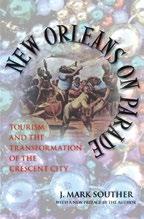
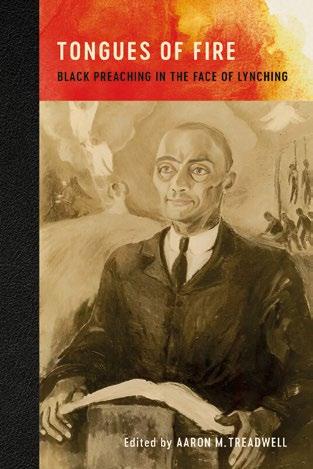
NOVEMBER 2025
276 pages, 6 x 9
978- 0- 8071- 8490- 5
Hardcover $45.00s, ebook available
African American History / Religious Studies
Tongues of Fire Black Preaching in the Face of Lynching
Edited by AARON M. TREADWELL
ALSO OF INTEREST
978-0-8071-7274-2
Hardcover $45.00s
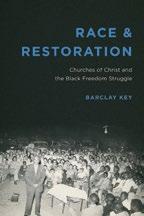
Tongues of Fire is a collection of sermons and other writings by Black preachers that speak directly to lynching in the Jim Crow era. The collection, expertly edited and annotated by Aaron M. Treadwell, features more than forty pastors and fifty sermons. The sermons illuminate how Black churches, particularly the African Methodist Episcopal Church, stood at the forefront of antilynching efforts during the Nadir era as Black clergymen used their preaching to help protect their congregations from danger. Known as theological protectionism, this form of preaching sought to thwart or avert lynchings—and occasionally succeeded. Emphasizing radical, pious, or constitutional forms of theological protectionism, the sermons reveal yet another way that Black Americans fought back against the wave of extralegal executions that swept the nation in the late nineteenth and early twentieth centuries.
The collection exposes an early development of African American resistance ideology—a concept that aligned with and perhaps ignited the long civil rights movement. Included are sermons that sup-
port the use of self-defense with firearms, the public shaming and condemnation of white churches, and reparation strategies that pinpoint lynching as a qualifier for federal aid. In their efforts to protect their congregations, preachers showed a willingness to utilize a theology that saw beyond the divinity of Christ to encompass his humanity as a fellow victim of lynching. Protection theology highlighted a symbiotic relationship in which serving a lynched deity could motivate Black people to, in the words of a Black hymnist, “make it over.”
In his introduction to each sermon, Treadwell explains and contextualizes the acts of racial caste violence that inspired these Black preachers. Tongues of Fire is the only book-length compilation of these vastly important yet understudied sermons, which reveal how Black churches fought against the scourge of lynching.
AARON M. TREADWELL is the director of Africana Studies and associate professor of history at Middle Tennessee State University.
Daughters of Divinity
Evangelical Protestant Christianity and the Making of a New Southern Woman, 1830–1930
KATHERINE E. ROHRER
“Daughters of Divinity is a sweeping and innovative study of southern Protestant women in domestic and foreign missions between 1830 and 1930. Using institutional and personal accounts, Katherine Rohrer insightfully captures their ambitious vision as well as the limits created by their racial, religious, and class biases.” —Scott Stephan, author of Redeeming the Southern Family: Evangelical Women and Domestic Devotion in the Antebellum South
“Daughters of Divinity explores the transformative impact of evangelical Christianity on a subset of young, elite women between 1830 and 1930. Tracing a shift in their evangelism from the private sphere into the public domain, Rohrer reveals the tension between this shift and deeply held racial and gender ideals, reflecting the coexistence of New South progressivism with Old South retrenchment.” —Jennifer
Lynn Gross, author of Sisterhood of the Lost Cause: Confederate Widows in the New South
“In cogent and engaging prose, Katherine Rohrer’s Daughters of Divinity reframes our understanding of white southern women as they navigated the intersection of gender and racial identity and ideology, religious faith, and missionary activity, expanding educational opportunities and engagement in social reform movements. Rohrer convincingly shows how their private lives and public roles changed during this period even as patriarchal and white supremacist cultural values and social structures continued
to predominate among them and within their native South generally.” —James Hill Welborn III, author of Dueling Cultures, Damnable Legacies: Southern Violence and White Supremacy in the Civil War Era
“Through sweeping narratives and intimate portraits, Katherine Rohrer’s dynamic study provides new insights into women’s religious leadership in their own homes and communities, in their denominational institutions, and as foreign missionaries to Africa, Asia, and South America. Daughters of Divinity carves a unique path through a welltrod historical landscape and is a much- needed contribution to the field of southern history.”—Charity Rakestraw, author of Ministers and Masters: Methodism, Manhood, and Honor in the Old South
Katherine E. Rohrer’s Daughters of Divinity tells the story of how well-educated white women of the South used evangelical Protestant Christianity as an instrument to expand their intellectual and professional capacities as well as their agency and influence at home and throughout the world between 1830 and 1930.
KATHERINE E. ROHRER is associate professor of history at the University of North Georgia.
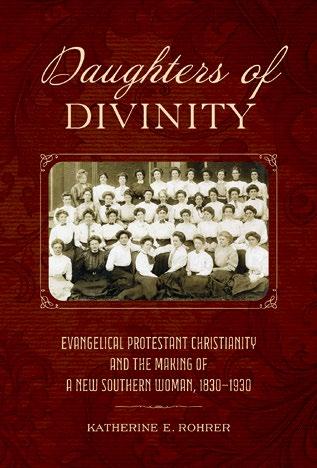
AUGUST 2025
256 pages, 6 x 9, 2 halftones
978- 0- 8071- 8488-2
Hardcover $45.00s, ebook available Southern History / Gender Studies / Religious Studies
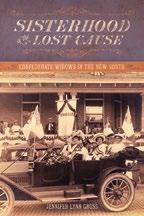

OCTOBER 2025
416 pages, 6 ¹∕ 8 x 9 ¼, 72 halftones, 16 maps
978- 0- 8071- 8451- 6
Hardcover $49.95
Military History / Louisiana / History of Higher Education
Published with the assistance of the V. Ray Cardozier Fund
PUBLISHED IN ASSOCIATION WITH THE CADETS OF THE OLE WAR SKULE
The Long Purple Line
The Military History of LSU and the Heroism of Its Cadets and Associates
RONALD J. DREZ
Published in association with the Cadets of the Ole War Skule
“Ron Drez has done it again! The Long Purple Line gallantly profiles how the Louisiana State University fighting Tigers have contributed to U.S. war efforts. With lucid and engaging writing, Drez explains LSU’s long history as one of the premier schools producing U.S. military officers for this nation’s conflicts. Drez’s clear descriptions of military valor and courage are awe- inspiring. He transports the reader into the lines of battle, and into cockpits of aviators engaged in desperate combat, and onto the frozen battlefields of Bastogne and Chosin Reservoir to capture the thunder of the battlefield. This is a tremendous work of scholarship and storytelling.” —Douglas Brinkley, New York Times bestselling author and acclaimed presidential historian
LSU formed one of the first federal officer training units and has supplied an impressive array of military officers for all the armed services. During World War II, only West Point, the Naval Academy, and Texas A&M fielded more officers for the war effort. Two generals hailing from LSU would become Commandants of the Marine Corps. And LSU’s own William T. Sherman’s credentials place him among the top generals in United States history.
978-0-8071-7071-7
Hardcover $125.00s

The Long Purple Line chronicles the military history of Louisiana State University from its founding in 1860 through all wars to the present. Ronald J. Drez unfolds that history through the actions and testimony of those who were there and who stepped out onto this nation’s battlefields to create a military legend that would rival the famous Long Gray Line at West Point. As a land-grant university with a military commitment in the form of a Cadet Corps, LSU was destined to become a major contributor of distinguished military personnel in all of this country’s engagements.
As the drama of each chapter’s action unfolds, readers will find themselves caught up in the roar of the battlefield, witnessing moments of gallantry by LSU cadets, alums, teachers, and associates. Drez highlights the extraordinary courage of LSU servicemen and women—a prerequisite on the battlefield and the very essence of the high standard of LSU’s military history and tradition.
RONALD J. DREZ is the author of several awardwinning military history books. He is the former assistant director of the Eisenhower Center at the University of New Orleans.
The Road to Cisterna
Darby’s Rangers and Their Most Consequential Battle in World War II
DAVID LYLE WILLIAMS
As Told by the U.S. Army Rangers in the Mediterranean Theater, 1942–1945
“Extensively researched, exceptionally detailed, and meticulously documented, The Road to Cisterna will be the definitive account of the 1st Ranger Battalion in World War II and will far eclipse anything previously written.” —William J. Leszczynski Jr., Brigadier General, U.S. Army (Retired); former commander, 75th Ranger Regiment
“The Road to Cisterna is a fascinating, ‘soldier’s level’ account of the World War II exploits of one of America’s most storied military units—the U.S. Army Rangers. Formed in the months following Pearl Harbor, the Rangers were comprised of audacious volunteers, forged into warriors by seasoned British Commandos, and ultimately set a standard for unorthodox tactics and stunning courage. David Williams’s account reflects his exhaustive research and intuitive understanding of these elite warriors. More than simple history, it is pure inspiration.”—Stan McChrystal, General, U.S. Army (Retired); former commander, 2nd Ranger Battalion and 75th Ranger Regiment
The Road to Cisterna is the story of Darby’s Rangers, an elite American army unit in World War II, selected for toughness and specially trained in beach landings and lightning raids deep behind enemy lines. Commanded by Colonel William Orlando Darby, the 1st Ranger Battalion spearheaded land-
ings in North Africa and helped defeat German general Erwin Rommel—the Desert Fox—in Tunisia. Their success inspired the creation of two more battalions led by Darby in the invasions of Sicily and the Italian mainland. The Rangers’ record of victories ended in central Italy at the Battle of Cisterna, where a force of almost sixty thousand Germans wiped them out. The German forces captured all but a few of the survivors, but many Rangers made daring escapes from prisoner-of-war camps. Of the Rangers who fought that battle, forty-six tell their stories in this book.
David Lyle Williams spent over two decades collecting the memories of Darby Rangers, enabling him to compile an unprecedentedly thorough history of the unit. Unlike previous accounts, more than 160 Rangers speak here in their own words and voices, giving an intimate picture of their combat experiences, enabling the reader to know them as individuals.
DAVID LYLE WILLIAMS is a former U.S. Army officer (1967–1969). He has a PhD in wood science and worked for fifty years in the forest products industry.

SEPTEMBER 2025
424 pages, 6 x 9, 22 halftones, 12 maps
978- 0- 8071- 8503-2
Hardcover $44.95, ebook available World War II Studies / U.S. History
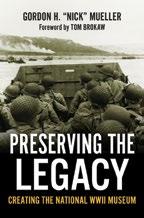
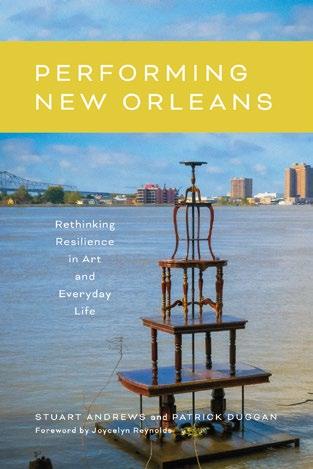
AUGUST 2025
276 pages, 6 x 9, 24 halftones, 1 map
978- 0- 8071- 8454-7
Hardcover $45.00s, ebook available New Orleans / Performing Arts
Performing New Orleans
Rethinking Resilience in Art and Everyday Life
STUART ANDREWS and PATRICK DUGGAN
Foreword by JOYCELYN REYNOLDS
ALSO OF INTEREST
978-0-8071-8202-4
Paperback $29.95
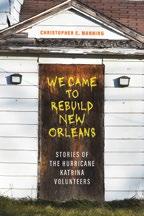
“Highlighting the importance of understanding climate adaptation as a cultural problem as much as a question of science or policy, Performing New Orleans offers an innovative look at emergency planning and hazard-mitigation practices in New Orleans. The book’s findings suggest novel approaches to resilience that will be valuable to colleagues across the globe.” —Austin Feldbaum, director, New Orleans Hazard Mitigation Office
“Performing New Orleans is a significant contribution to the discourse on the civic role of the arts. Stuart Andrews and Patrick Duggan have done what is rarely achieved—they have approached New Orleans with the depth, care, and rigor necessary to understand its cultural ecosystems, artistic practices, and historical continuities. This work is an essential resource for artists, cultural practitioners, and arts leaders seeking to engage with the ways performance not only sculpts discourse but also co- designs civic spaces. It reveals how the arts guide citizen focus, influence collective responses to pressing issues, and serve as a dynamic force in shaping the shared vision of a place. More than a study of New Orleans, this book is a critical resource for anyone invested in the intersection of performance, public life, and community- driven design.”—Lauren Turner Hines, founder and executive director, André Cailloux Center for Performing Arts and Cultural Justice
Performing New Orleans examines the value of arts and culture in managing complex urban challenges, offering new perspectives on how artistic and everyday performances can be pivotal modes of practicing resilience. Through an exploration of understudied forms of performance in New Orleans, Stuart Andrews and Patrick Duggan highlight the centrality of the city’s arts ecosystems as a vital aspect of its ability to build and maintain community, arguing that a truly resilient city is one that recognizes arts and culture professionals as crucial, critical innovators.
STUART ANDREWS is a senior lecturer in performance, place, and resilience at Brunel University of London. With Patrick Duggan, he is codirector of Performing City Resilience, an international, interdisciplinary research collaboration and consultancy.
PATRICK DUGGAN is associate professor of performance and culture at Northumbria University, Newcastle. With Stuart Andrews, he is codirector of Performing City Resilience.
JOYCELYN REYNOLDS is president and CEO of Arts New Orleans, the city’s officially designated arts agency. ANO supports artists, culture bearers, arts practices, and culture in the city.
A Feminist, Queer Adventure Line
How Digital Games Create Radical Spaces
ASHLEY P. JONES
In A Feminist, Queer Adventure Line, Ashley P. Jones explores how digital games can facilitate acts of political play and initiate change in the empirical world. Online harassment campaigns such as GamerGate expose the frequency with which hate speech is directed toward creators and players who identify with feminism or queerness and their allies. Change enacted specifically through feminist and queer gaming procedures and mechanics, as Jones shows, can offer opportunities for combating the marginalization and toxicity of some gaming experiences.
To expose the embedded ideologies within popular digital games, Jones focuses on the procedures and mechanics of embodiment, failure, queer futurity, and the coziness of feminist games. These interactive elements constitute crucial aspects of the play space and narratives of digital games, within both gaming cultures and the empirical world, as they point toward an acceptance of critical metagaming, a practice that encourages creators and players to think through, around, and within the games themselves. Throughout this process, the personal
act of play becomes a political act of engagement via game mechanics and players’ interpretations of them. Digital gaming, then, Jones argues, functions as a form of political action. Topics examined include how games and gaming culture can become more inclusive, the ways games invite participation from diverse groups of players, and the extent to which game design applies to ideological formations outside the digital world. Jones outlines these potentialities via playthroughs and case studies of popular games such as Hue, Life Is Strange 2, A Mortician’s Tale, Outer Wilds, The Stanley Parable, Untitled Goose Game, and What Remains of Edith Finch.
Pushing the subversive potential of gaming in new directions, A Feminist, Queer Adventure Line shows that play can be a vehicle for education and that games have the potential to enact positive acceptance of feminist and queer ways of being.
ASHLEY P. JONES is an assistant professor of journalism and communication at Wartburg College in Waverly, Iowa.
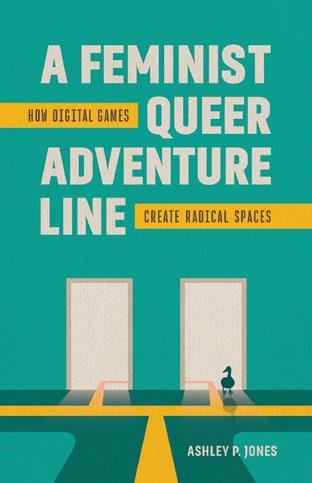
DECEMBER 2025
180 pages, 5 ½ x 8 ½, 11 halftones
978- 0- 8071- 8506-3, Hardcover $39.95
978- 0- 8071- 8572- 8, Paperback $29.95 ebook available Gaming / Gender Studies
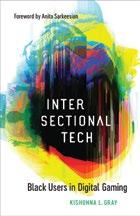
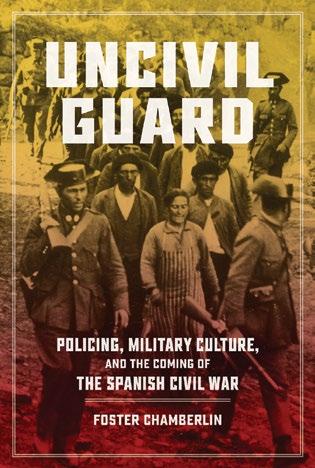
NOVEMBER 2025
240 pages, 6 x 9, 2 maps
978- 0- 8071- 8468- 4
Hardcover $50.00s, ebook available European History
New Hispanisms: Cultural and Literary Studies
Anne J. Cruz, Series Editor
Uncivil Guard
Policing, Military Culture, and the Coming of the
Spanish Civil War
FOSTER CHAMBERLIN
“This engaging and well-researched book offers a fascinating and pathbreaking account of one of the most important— and frequently feared—institutions in modern Spanish history. Foster Chamberlin shows how and why the Civil Guard clung to an outdated sense of honor even as it led to increasingly violent behavior.”—Geoffrey Jensen, author of Irrational Triumph: Cultural Despair, Military Nationalism, and the Ideological Origins of Franco’s Spain
“Chamberlin’s detailed archival work illuminates how both the Spanish Civil Guard’s nineteenth- century organizational structure and its cultural milieu, which syncretized police and military values, were maladaptive when faced with the rise of mass politics and increasing democratization in twentieth- century Spain.”—Sandie Holguín, author of Flamenco Nation: The Construction of Spanish National Identity
“This remarkable book focuses on the violence used by the Civil Guard in the Spanish Civil War not as simply a product of that conflict, but as the result of a militarized, conservative political culture that grew over the long history of the institution.” —David A. Messenger, author of Hunting Nazis in Franco’s Spain
ALSO OF INTEREST
978-0-8071-5563-9
Hardcover $40.00s
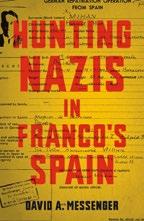
In Uncivil Guard: Policing, Military Culture, and the Coming of the Spanish Civil War, Foster Chamberlin evaluates the role of militarized police forces in the
political violence of interwar Europe by tracing the evolution of one such group, Spain’s Civil Guard, culminating in the country’s turbulent Second Republic period of 1931–1936. As Chamberlin’s analysis shows, political violence provided the main justification for the military coup attempt that began the Spanish Civil War, and the Civil Guard was the most violent institution in the country at that time. Discovering how this police force, which was supposed to maintain order, became a principal contributor to the violence of the republic proves key to understanding the origins of the Civil War. By tracing the institution’s founding in the midnineteenth century, and moving through case studies of episodes of political violence involving the group, Chamberlin concludes that the Civil Guard had an organizational culture that made it prone to violent actions because of its cult of honor, its distance from the people it policed, and its almost entirely military training.
FOSTER CHAMBERLIN is an assistant teaching professor of modern European history at Northern Arizona University.
Forty-Three Ways of Looking at Hemingway
JEFFREY MEYERS
PRAISE FOR JEFFREY MEYERS
“Meyers has given us an extremely valuable deepening of what is quite likely to prove Hemingway’s greatest work, his life.”—James Dickey, author of Deliverance
“Meyers’s Hemingway is one of the great biographies of our half century, a masterwork in which true scholarship and creative art are so united as to become indistinguishable.”
—George D. Painter, author of Marcel Proust: A Biography
The multifaceted, cubist, and comprehensive perspective of Forty-Three Ways of Looking at Hemingway appears on the fortieth anniversary of Meyers’s magisterial biography of Hemingway. This approach has never before been used to illustrate the complexity of his character, the range of his interests, and the brilliance of his work. This authoritative book uses sources in Italian, Spanish, French, and German. It reveals his reading of literature and history, his transformation of friends into fiction, his personal battles and mythic stature, his persona and
ever-growing legend. This work analyzes his name and background, early work, friendships, relations with artists, connections to contemporary writers, description of historical figures and events, war reporting, military experience, life in Cuba, links with Hollywood, wives and lovers as well as the novels that influenced The Sun Also Rises and the background of “The Short Happy Life of Francis Macomber.” It also considers Hemingway’s feasts, humor, quarrels, self-condemnation, Nobel Prize, unwritten works, suicide, and lasting achievements.
JEFFREY MEYERS , one of twelve Americans in the Royal Society of Literature, is the author of fiftyseven books on biography, art, film, and literary criticism. His work has been translated into fourteen languages and published on six continents. He has received a grant from the Guggenheim Foundation and an Award in Literature from the American Academy of Arts and Letters honoring exceptional achievement.
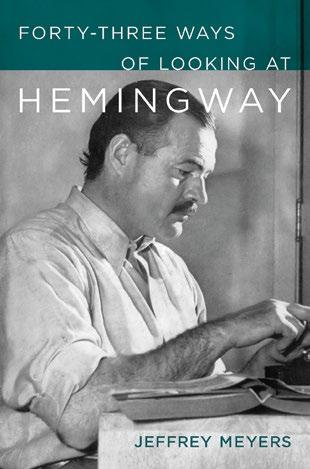
NOVEMBER 2025
368 pages, 6 x 9
978- 0- 8071- 8509- 4
Hardcover $39.95, ebook available Literary Studies / Biography
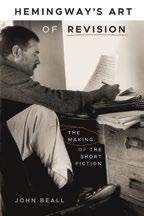
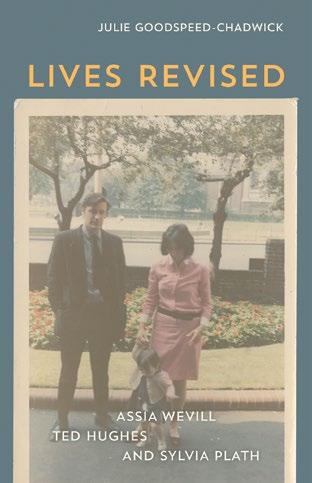
SEPTEMBER 2025
192 pages, 5 ½ x 8 ½
978- 0- 8071- 8478-3
Hardcover $40.00s, ebook available Literary Studies / Biography
WINNER OF THE 2025 LEWIS P. SIMPSON AWARD
Lives Revised
Assia Wevill, Ted Hughes, and Sylvia Plath
JULIE GOODSPEED- CHADWICK
“Assia Wevill, the shadowy third woman in the tragic triangle of Ted Hughes and Sylvia Plath, comes blazingly alive in this groundbreaking and compassionate study by Julie Goodspeed- Chadwick. An essential addition to the field.”
—Elaine Showalter, author of A Jury of Her Peers: American Women Writers from Anne Bradstreet to Annie Proulx
“Drawing upon new sources, Goodspeed- Chadwick enriches our understanding of Assia and Ted’s story, and blows open the misogynistic and sexist tropes that have calcified around the Assia-Ted- Sylvia triangle. Goodspeed- Chadwick rewrites Assia back into literary history, and reveals the biases that prevented her life from receiving the respect and attention it deserves. This book not only restores Assia Wevill’s humanity but also offers new paradigms for feminist biography.” —Heather Clark, author of Red Comet: The Short Life and Blazing Art of Sylvia Plath
ceived, and dismantled across decades of research and interpretation. Her work plumbs the practical challenges and interpretive possibilities of biographies that engage with difficult subjects such as Wevill, Hughes, and Plath, particularly given the personal traumas, tragic ends, and competing legacies involved.
Drawing on documents and recordings only recently made available to researchers, Lives Revised: Assia Wevill, Ted Hughes, and Sylvia Plath recovers previously inaccessible accounts about its subjects, contextualizes them within the critical traditions of feminism and trauma studies, and asks readers and scholars to rethink previous conclusions about three complex figures in literary and cultural history.
ALSO OF INTEREST
978-0-8071-7056-4
Hardcover $45.00s

In Lives Revised, Julie Goodspeed-Chadwick engages the entangled life stories of Assia Wevill, Ted Hughes, and Sylvia Plath to recover details, nuances, and perspectives excluded from previous biographies. Based on extensive archival work at the British Library and Emory University, as well as unpublished materials in private hands, Goodspeed- Chadwick considers how biographical storylines are constructed, recon-
JULIE GOODSPEED- CHADWICK is Chancellor’s Professor of English, affiliate faculty member in women’s, gender, and sexuality studies, and director of the Office of Student Research at Indiana University Columbus. She is the author of Reclaiming Assia Wevill: Sylvia Plath, Ted Hughes, and the Literary Imagination and coeditor, with Peter K. Steinberg, of The Collected Writings of Assia Wevill.
How Cormac Works
McCarthy, Language, and Style
BILL HARDWIG
Throughout a career that spanned six decades, Cormac McCarthy produced twelve novels that, while often quite different from one another, show a consistent commitment to formal experimentation motivated by a love of language and the possibilities therein. While it is McCarthy’s grim depiction of violence and his texts’ complex philosophical perspectives that receive the most attention from scholars, readers who admire the author’s work are often drawn to it initially, as Bill Hardwig was, at the level of language, attracted by the breathtakingly original way McCarthy strings together words and paints images in the minds of readers.
In How Cormac Works, Hardwig suggests that McCarthy’s defining attribute as an author falls not in the realm of psychology, philosophy, or history
but in his experimentation with language—in the style that gives his books their atmosphere, mood, and tone. Hardwig’s analysis foregrounds the ways in which McCarthy utilizes and manipulates language, how he uses it to simultaneously create and withhold meaning, draw clear images, and resist this clarity. How Cormac Works focuses less on the what—what McCarthy writes or what the characters say—and more on the how—how McCarthy structures his fiction and how that structure contributes to his literary style and meaning.
BILL HARDWIG is associate professor of English at the University of Tennessee, Knoxville, and the author of Upon Provincialism: Southern Literature and National Periodical Culture, 1870–1900.

OCTOBER 2025
240 pages, 6 x 9, 11 halftones
978- 0- 8071- 8453- 0, Hardcover $45.00s
978- 0- 8071- 8549- 0, Paperback $35.00s ebook available
Literary Studies

ALSO OF INTEREST
978-0-8071-8342-7 Paperback $35.00s
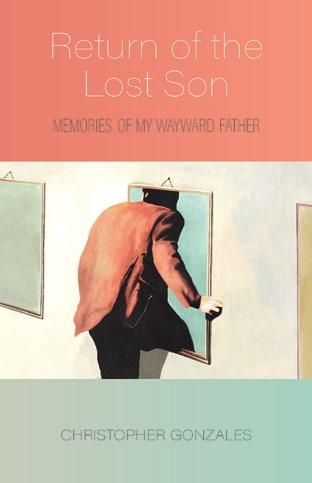
AUGUST 2025
150 pages, 5 ½ x 8 ½
978- 0- 8071- 8469-1
Paperback $29.95, ebook available LSU Press Paperback Original Memoir
Return of the Lost Son
Memories of My Wayward Father
CHRISTOPHER GONZALES
“More than a memoir, Return of the Lost Son is an act of reparation: in sifting through the ashes and shards of his father’s ruptured past, connecting with his father’s past wives and his own lost siblings, and becoming a husband and father himself, Christopher Gonzales crafts his own contrasting version of family, one fused by compassion, vulnerability, and self- determination.”—Molly Beer, author of Angelica: For Love and Country in a Time of Revolution
“Like all great memoirists, Gonzales contends with the slipperiness of memory, our shifting relationship to the past, and the human desire for stories to contain our grief. Return of the Lost Son is a master class in narrative nonfiction.”—J. D. Schraffenberger, editor of the North American Review
“A kaleidoscopic journey that unfolds in evocative prose, Return of the Lost Son transports readers from Ithaca, New York, to Mexico City, from the past to the present, from fact to imagination. The result is an immersive, affecting read that centers a complicated figure in a story brimming with truth, honesty, and love.”—Laura Maylene Walter, author of Body of Stars
ALSO OF INTEREST
978-0-8071-7663-4
Paperback $34.95
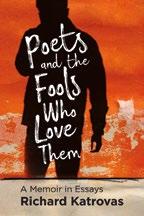
A son searches for his father, only to grow uncomfortable—and even miserable—with what he exhumes. Where, he asks, are the limits of forgiveness?
Is failure a badge of honor? Are we free to share the secrets of the dead? In Return of the Lost Son, a vivid, tightly paced memoir, Christopher Gonzales attempts to understand a man who, due to early-onset Alzheimer’s, was unable to share his own memories. At the outset of his exploration, Gonzales hopes to discover a benevolent father figure, someone he could imagine guiding him through the difficult terrain of life. Instead, he is met with shadowy fragments of his father’s habits—drinking, womanizing, and aloofness—as well as a hidden marriage, which all force Gonzales to acknowledge that he might never uncover the angel he hoped to find. Constructed with clear-eyed prose and abounding with colorful travel stories, wending inner journeys, and psychological intricacies, Return of the Lost Son emerges from a committed project of asking and listening, recovering memory and community, and ultimately, healing.
CHRISTOPHER GONZALES has published stories in the Hopkins Review, North American Review, Stone Canoe, and elsewhere. He and his wife live in the Finger Lakes region of New York.
Queer Allusion
Poetic Connections from Wilde to Ginsberg
FLORIAN GARGAILLO
“Queer Allusion makes an important contribution to poetry studies because it asks us to rethink literary influence. Contesting dominant views on the topic put forward by Bate and Bloom, Florian Gargaillo argues that literary influence need not be viewed as hierarchical, a burden, or a source of conflict between the new poet and the precursor. Instead, influence can be understood as an expression of the later poet’s desire for community and connection across time.”—Daniel Morris, author of Not Born Digital: Poetics, Print Literacy, New Media
“Gargaillo’s book will open eyes to the expressive and communicative potential, the consolatory or liberatory power of a large corpus of famous poets, echoing and learning from one another, from the Victorian era to the present.”
—Marshall Brown, author of The Tooth That Nibbles at the Soul: Essays on Poetry and Music
Queer Allusion uncovers the crucial but underexamined role played by literary allusion in shaping queer poetry on both sides of the Atlantic, from the trial of Oscar Wilde in 1895 to the Stonewall Riots of 1969. In this wide-ranging, erudite study of influence and personal expression, Florian Gargaillo identifies three major functions of allusion for LGBTQ poets. First, allusion enabled writers to process their experiences through literary antecedents,
and thus shape their identities in writing. Second, allusion provided a means to establish connections with other authors at a time when LGBTQ communities were often isolated and clandestine. Finally, establishing links across multiple works helped build a queer literary canon running parallel to the traditional contours of English-language verse.
Gargaillo shows that allusion’s particular appeal for queer poets lay in its blend of secrecy and openness. LGBTQ poets employed allusion to understand themselves, connect with others, and establish an alternative, underground poetic tradition. Queer Allusion thus provides an innovative framework for studying LGBTQ poetry, tracing lineages from figures like Wilde to A. E. Housman and Countee Cullen, who are rarely considered together due to differences in style, period, or movement. Through incisive close readings and contextual analysis, this book offers a new map of LGBTQ literary history and a new way to view the relationship between queer poets and the poetic past.
FLORIAN GARGAILLO , associate professor of English at Austin Peay State University, is the author of Echo and Critique: Poetry and the Clichés of Public Speech.
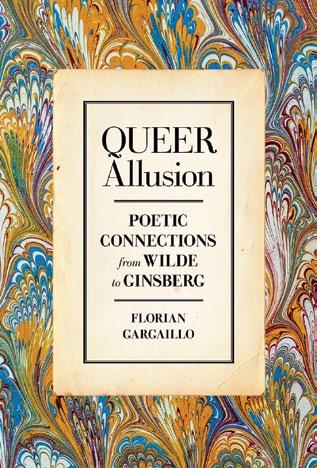
DECEMBER 2025
224 pages, 5 ½ x 8 ½ 978- 0- 8071- 8473- 8
Hardcover $40.00s, ebook available Literary Studies
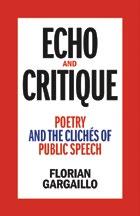
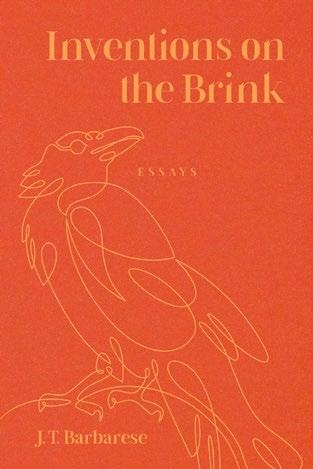
NOVEMBER 2025
280 pages, 6 x 9
978- 0- 8071- 8508-7
Paperback $34.95, ebook available LSU Press Paperback Original Literary Studies / Essays
Inventions on the Brink Essays
J. T. BARBARESE
PRAISE FOR J. T. BARBARESE
“A poet . . . whose perceptions are idiosyncratic, often comically so (especially his seeing), but always insightful and strikingly original.”— Prairie Schooner
“The freshness of his language matches perfectly—abets, I should say—the freshness and candor of his world view.”
—David Yezzi
Inventions on the Brink, a collection of literary journalism by J. T. Barbarese, offers engagingly plainspoken and informed essays on American poetry from Edgar Allan Poe to the present, written by a poet with long experience in the classroom. The collection discusses writers as divergent as Walt Whitman and Ezra Pound, Hart Crane and A. R. Ammons, Gerald Stern and John Prine. It includes a separate section of essays examining the craft of translation with attention to specific works translated from ancient Greek, Italian, and modern French.
A distinguishing feature of the book is that it is informed by literary theory but independent of any particular critical modality. Barbarese writes about literature for a general audience, particularly readers with wide tastes interested in engaging with literary art. His essays are the outcome of deeply reading and internalizing work he has known, studied, and admired over the course of a long career of publishing, teaching, and public lecturing.
J. T. BARBARESE , professor emeritus of English at Rutgers University, is the author of six books of poetry, including Sweet Spot and True Does Nothing. His recent translations include After Prévert: Poems from “Paroles,” and his work has appeared in publications such as The Atlantic, The New Yorker, Poetry magazine, and Times Literary Supplement.
ALSO OF INTEREST
978-0-8071-8400-4
Paperback $35.00s

The Odeon
Essays on Poetry
DANIEL TOBIN
“If there is a book that beautifully configures the weight of the present into contexts of aesthetics, of intersections or collisions with science, religion, and ideas of poetry, it is this collection of essays by Daniel Tobin, a poet whose erudite seriousness travels the seen and the unseen realities of our lives. This is a set of diverse and inclusive meditations by one of our most noted poets.” —Afaa M. Weaver, author of A Fire in the Hills
“The Odeon is a symphonic achievement that sets contemporary American and English poetry within and against the historical backdrop of Western poetry. Tobin is himself one of America’s most accomplished poets, whose poems bring a deep sense of intellectual and cultural history to bear on even the most intimate and personal experience. It’s no surprise that his discussions of poetry are equally wide-ranging, erudite, and detailed—and a total delight to read.”—Alan Shapiro, author of By and By
The Odeon, a new volume of essays by the celebrated poet and critic Daniel Tobin, takes its title from the classical Greek and Roman buildings designed for the presentation of musical and poetic compositions. Organized around the question of “sensibility”—with its various social, philosophical, and aesthetic connotations—the collection presents
a sequence of related essays exploring both resonances and dissonances in the traditions of modern and contemporary poetry. Although Tobin surveys a broad spectrum of works—ranging from John Donne and Emily Dickinson to writers from the twenty-first century such as Mark Doty, Louise Glück, and Carl Phillips—his emphasis remains on details of poetic practice, technique, metaphysical outlook, and artistic aspiration.
What most informs these essays is Tobin’s own practice as a poet, his own sensibility, which is at once eclectic and yet very much calibrated to matters of what one theologian termed “ultimate concern.” The Odeon offers an incisive foray into the state of the art of poetry in our time.
DANIEL TOBIN is a poet, editor, translator, and essayist whose work has been named among the best books of the year by the New York Times. His honors include the Discovery/The Nation Award, the Robert Penn Warren Award, the Katharine Bakeless Nason Prize, and fellowships from the National Endowment for the Arts and the John Simon Guggenheim Foundation.
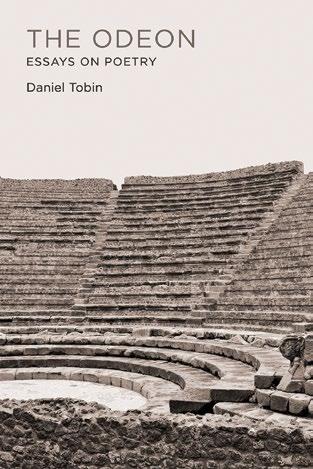
AUGUST 2025
272 pages, 6 x 9
978- 0- 8071- 8470-7, Hardcover $70.00s
978- 0- 8071- 8519-3, Paperback $35.00s ebook available
Literary Studies / Essays
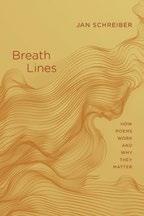
ALSO OF INTEREST
978-0-8071-8402-8 Paperback $30.00s

OCTOBER 2025
90 pages, 6 x 9
978- 0- 8071- 8498-1
Paperback $20.95, ebook available
LSU Press Paperback Original Poetry
The Furies Poems
MOIRA EGAN
ALSO OF INTEREST
978-0-8071-6974-2
Paperback $20.95
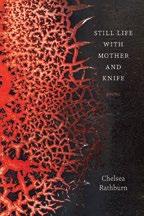
“The Furies reminds us once again why Moira Egan is one of the most influential poets of our time. With an inimitable voice, she tackles intense subjects like desire and womanhood with sharp wit and unflinching truth, all while maintaining her technical mastery.”—Alexis Sears
“Egan understands received forms’ emotional and psychological layers: sonnet sequences as community gathering or anagrams as sensuous, private conversation. The Furies is intelligent, biting, and earthy.”—Derrick Austin
“Theatrical in conception and execution, Egan’s speakers turn caustic or droll, passionate or knowing. Her poems are smart, yes, but it is an intelligence filled with pathos. Egan feels her thoughts, as Eliot says of the Metaphysical poets, ‘as immediately as the odour of a rose.’ She writes to delight the senses.”—David Yezzi
In The Furies, Moira Egan offers fierce feminist reimaginings of familiar myths and narratives, from Arachne to Echo, from Medusa and Mary Magdalene to the female characters of The Odyssey, in verse that highlights the value of solidarity and collective strength among women. With dazzling erudition and playful ingenuity, she deploys exuberant wordplay and traditional poetic forms to subvert the patriarchal canon. At the heart of the book is a profound exploration of voice, not least the ongoing silencing of women’s voices: Egan blends righteous anger with grief, ultimately finding hope in the transformative power of language.
MOIRA EGAN has published five books of poetry in the United States and four in Italy, including Amore e morte, a bilingual collection of new and selected poems. Her work has been featured in journals and anthologies on four continents. Also a prizewinning translator, she lives in Rome with her husband, Damiano Abeni.
The Dear, The Dark
She tells me that she doesn’t like the dark; she’s terrified that she’ll dissolve in it.
I want to tell her, there’s a certain art to living in it. Ebony or jet,
black jade or onyx, these are precious things without which one cannot behold the light as it’s meant to be seen: contradistinct: the warmly luminous, the sweetly bright.
A perfect diamond on black velvet; stars that shoot or sparkle in the evening sky; the single candle in the funeral parlor; the lighthouse beacon. She’s about to cry
so now I’ll tell her: it’s a gift to know the way the light emerges out of shadow.
Constellations
The Collected Poems of Daniel Mark Epstein
PRAISE FOR DANIEL MARK EPSTEIN
“Epstein made history vivid by soaking the reader in the speech of the American past.”—John Unterecker, Michigan Quarterly
“When he achieves general recognition as a major poet, remember you first read about him here.” New Republic
Daniel Mark Epstein’s poetry has been in the public eye for nearly sixty years, since the magazine publication of the poems in his groundbreaking first book, No Vacancies in Hell (1973). Critics praise the erotic and spiritual lyricism of his poetry, as well as its power in capturing crucial moments of American history in dramatic monologues, including prizewinning portraits of a yellow fever epidemic and Henry Adams’s tragic marriage.
Of The Traveler’s Calendar (2002), Booklist commented, “Biographies of Nat King Cole and Edna St. Vincent Millay have won Epstein greater renown, but his best writing is his mythically and historically haunted poetry.” The critic Adam Kirsch called Dawn to Twilight (2015), a selection of Epstein’s lyric poems, “a testament to the achievement of a major American poet.”
Constellations collects, for the first time, the nine books of poems published by a modern master of lyric, dramatic, and narrative poetry. A stirring selection of new work includes the sonnet sequence “Cruel April: Poems from the Pandemic,” which inspired a 2020 short film featuring Tyne Daly.
DANIEL MARK EPSTEIN is an acclaimed poet, dramatist, and biographer. His honors include the Rome Prize, a Guggenheim Fellowship, and an Academy Award from the American Academy of Arts and Letters. His holiday stories “Star of Wonder” and “The Two Menorahs” air regularly on National Public Radio.
The Last Station
Like a traveler seated backward on a train who sees almost nothing until it’s passed him by, he has missed his childhood and his children’s. His youth is a blur, and middle age an illusion.
And what looms large diminishes rapidly to a vanishing point before he can name it: a forest that never occurred as separate trees, a woman waving goodbye at the last station.
Meadows and fields bloom and yield so quickly, the seasons’ colors run together. Even the mountains, much greater than the land, bow to lowly hills that fade away into the sky.
He nods to the snow that veils all such dimensions so gently, and sleeps, a ghost adrift in drifting snow.
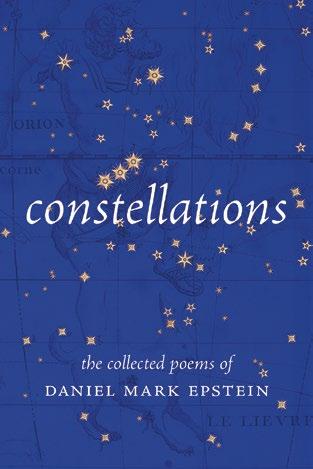
OCTOBER 2025
400 pages, 6 x 9
978- 0- 8071- 8477- 6
Hardcover $44.95, ebook available Poetry
Published with the assistance of the Sea Cliff Fund ALSO OF INTEREST
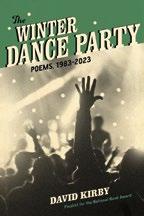
978-0-8071-8244-4
Paperback $34.95
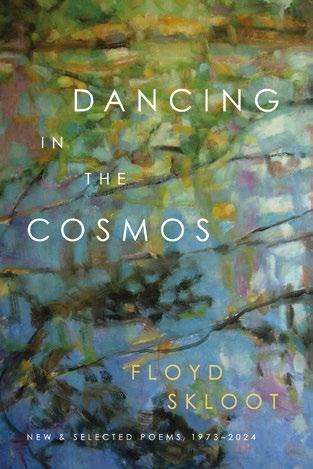
OCTOBER 2025
192 pages, 6 x 9
978- 0- 8071- 8474- 5
Paperback $29.95, ebook available
LSU Press Paperback Original Poetry ALSO OF
978-0-8071-6017-6
Paperback $19.95
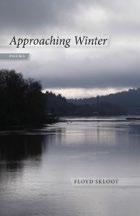
Dancing in the Cosmos
New and Selected Poems, 1973–2024
FLOYD SKLOOT
PRAISE FOR FLOYD SKLOOT
“A tribute to the creative spirit.”— Washington Post
“Skloot’s is an extraordinary voice that gains in power over time, one that brings us closer to the mysteries that hover beyond the experiences of our daily lives.” Prairie Schooner
“A poet of singular skill and subtle intelligence.” Harvard Review
“I believe that Mr. Skloot is one of the finest lyric poets writing in English today.”—Daniel Mark Epstein
Dancing in the Cosmos contains work selected by Floyd Skloot from his nine previous poetry collections as well as a group of new poems written in the last decade, including an exploration of his life since the onset of Parkinson’s disease.
At the heart of the book is a consideration of illness and love, science and grit, and clarity of purpose when chaos rules. Much of Skloot’s writing reflects the experience of becoming disabled in 1988 from viral-born brain damage, as he shows how full engagement in life and the world is not only possible but essential when life takes unexpected turns and when illness seems to derail all progress. His poems make use of poetry’s traditional forms and structures, along with its contemporary freedoms, its range of linguistic and rhythmic possibilities,
and its capacity for fighting its way again and again toward the necessary strength that enables endurance, and even celebration.
FLOYD SKLOOT is a poet, novelist, and creative nonfiction writer. His work has appeared in many literary journals and received three Pushcart Prizes, a PEN USA Literary Award, and numerous other honors. In 2010, Poets & Writers featured him on a list of “fifty of the most inspiring authors in the world.” He lives in Oregon with his wife, the artist Beverly Hallberg.
Tonight the moon throbs with light it seizes from stars as they rise and the cypresses grow holy before my eyes. Wind fills the sky.
I see clouds shudder, houses and shops cower, but somehow high grass finds its own source of stillness. I think it is violet in nature. Never has there been such a night for seeing how the dark world thrives when day’s brilliance dies and sight fully becomes surprise.
Who would want all these deep blues to soften as though toward dawn?
—from “Starry Night”
In Plenty’s Woods
Poems
BRENDAN GALVIN
PRAISE FOR BRENDAN GALVIN
“A voice that alternately conjures and captures the manifold wonders of the natural world.” New York Times Book Review
“Galvin makes poems whose seemingly effortless conversation haunts us with human truths and lyric staying power.” Virginia Quarterly Review
“Galvin’s poems can be elegantly scruffy as a crow’s chatter, but they seek beauty as if finding it were a matter of life and death, as he proves over and over it is.” Shenandoah
In Plenty’s Woods, a final collection of poems by Brendan Galvin, returns to many settings and subjects that fascinated him: the natural world, particularly the birds around his home off Cape Cod in Truro, Massachusetts; the attractions and dangers of the seashore; his Irish heritage, including its rich language and folk culture; and the pleasures of domestic life. He explores the natural order in dialogue—sometimes playful, sometimes grave— with a personal realm of love, mortality, and the history embedded in the language we exchange. Whether describing the birdlife he sees even during wintertime, speculating on the voices heard by sleeping sailors at sea, or writing a love poem he cannot read to his departed wife, Galvin remains a poet of consummate skill and powerful emotion who works the narrative lyric with great precision of attention, flexibility of tone, and expressivity of figure.
Prior to his death in 2023, BRENDAN GALVIN published nineteen books of poetry, including Habitat: New and Selected Poems, a finalist for the National Book Award. Among his many additional honors were a Guggenheim Fellowship, the Sotheby Prize of the Arvon Foundation, Poetry magazine’s Levinson Prize, and two fellowships from the National Endowment for the Arts.
Where once I watched, I stand alone and see new things— the beachplum bushes whitely blossoming, or so it seems. I think of the migrants, hope for them in their winter crossings, dangers of mountains and predators, deserts, though I cannot calculate how many days and night flights the stars direct, wind strengths or the planet’s magnetic fields, low frequency sound waves, and whose body clocks advise their taking leave, or who spreads wings for the scent of ocean. At my feeder, meaning to stay, the chickadees and nuthatches take turns dipping their bills more than once to prove the water is still water.
—from “October Snow”

OCTOBER 2025
78 pages, 6 x 9
978- 0- 8071- 8476- 9
Paperback $19.95, ebook available LSU Press Paperback Original Poetry
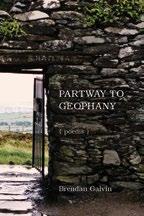
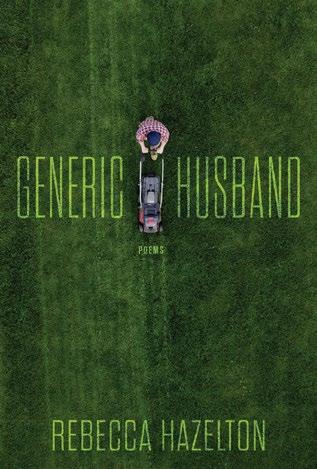
OCTOBER 2025
66 pages, 6 x 9
978- 0- 8071- 8472-1
Paperback $19.95, ebook available
LSU Press Paperback Original Poetry
Generic Husband Poems
REBECCA HAZELTON
ALSO OF INTEREST
978-0-8071-7583-5
Paperback $20.95
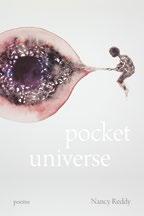
“Whip-smart and darkly funny, Rebecca Hazelton’s Generic Husband probes the mystery of marriage, how if you move through life with one loved person long enough, they can become invisible to you. Hazelton’s poems turn a keen eye on the husband as concept and (unreasonably hot) body, unspooling a multiverse of men whose devotion is ‘terrible, beautiful, [and] unrelenting.’ I dare you to read this book and not fall a little in love with all these husbands, generic, specific, optimistic, self-taught, and otherwise. Men might be mostly bad, but these husbands are great.” —Nancy Reddy
Generic Husband presents a queer take on an old, beloved, and troublesome subject: the husband. While the “generic husband” of the cultural imagination has remained relatively static, the reality of the husband in contemporary marriage proves multidimensional and complex. Alternatively tender and bitingly funny, Rebecca Hazelton’s poems unpack the inequities created by gender, power, and patriarchal legacies, unraveling what a “husband” can be, both personally and culturally.
REBECCA HAZELTON is an award-winning poet, writer, critic, and editor. She is the author of Fair Copy, Vow, and Gloss, a New York Times “New and Notable” book. Her poems have been published in literary journals and national magazines such as The New Yorker, The Nation, Poetry, and Boston Review.
The husbands have a plan. The plan is to make more husbands. More husbands, more problems, is a thing the husbands have never said. The more husbands there are the more husbands there will be. Husbands beget husbands. The cities will be full of husbands. Husbands will spill from the upper stories of apartment buildings. Husbands will clog the canals of Amsterdam. Husbands will walk across the Grand Canyon on the bodies of other husbands.
There will be so many husbands that husbands will seem interchangeable. One husband is much like another husband in the dark.
—from “More Husbands”
Driving the Beast
Poems
CHRISTOPHER BAKKEN
“Driving the Beast is an epic pilgrimage through underworlds of myth and memory. From the legend- riven islands of Greece to the American heartland, Christopher Bakken confronts mortality, history, and the passage of time in poems as unsparing as they are luminous.”—Jane Satterfield
“A theologian of sensuosity, a memoirist refusing nostalgia, a seer, Bakken offers us the shards of experience that somehow, almost, never quite, and yet still might put our broken world back together again.”—Alan Michael Parker
“Driving the Beast offers an esoteric theology, one that trusts hunger as revelation, as nudge, as indicator of where the pilgrim ought to go and how the pilgrim might hope to proceed.”—Scott Cairns
“Not surprising for a poet who has spent time interrogating the ancients and inhabiting the modern cities they bequeathed us, Bakken composes ritual songs that point past the surfaces of experience to what is both mysterious and essential.”—David Yezzi
Driving the Beast is a book about movement. Christopher Bakken’s poems shift between Greece and the American Midwest, tracking the restless nature of selfhood, while seeking glimpses of the sacred in landscapes scarred by history and political turmoil. The book’s back-and-forth mirroring invites readers to confront their own reflections in moments of catastrophe and wonder, and to view them alongside those of immigrants and refugees.
CHRISTOPHER BAKKEN is the author of three previous books of poetry and the culinary memoir Honey, Olives, Octopus: Adventures at the Greek Table. Twice a Fulbright Scholar, he teaches at Allegheny College and serves as director of Writing Workshops in Greece: Thessaloniki and Thasos.
On the Way to Panormo
As for the impossibility of being here, I think of the old man limping ahead of me in the village today, a huge bag of lemons in one hand, an olive-wood cane in the other, black wool sweater thin at the elbows, how he stopped once, then again, to look over his shoulder, as if hoping to remember why, moments ago, he dressed and left his balcony with the belief they were—these heavy lemons—something he needed,
saying open your eyes, saying so much is already behind you, cured inside its rind, and yet leave anyway, it is already February, and know the almond trees have opened their wounds to the sun, each blossom an awareness specked with blood.
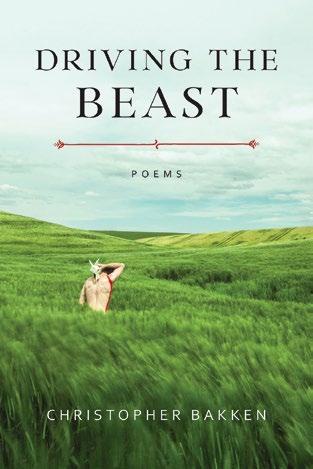
DECEMBER 2025
84 pages, 6 x 9
978- 0- 8071- 8475-2
Paperback $20.95, ebook available LSU Press Paperback Original Poetry
Sewanee Poetry
Wyatt Prunty and Leigh Anne Couch, Series Editors
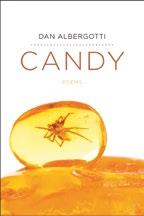
ALSO OF INTEREST
978-0-8071-8254-3
Paperback $19.95
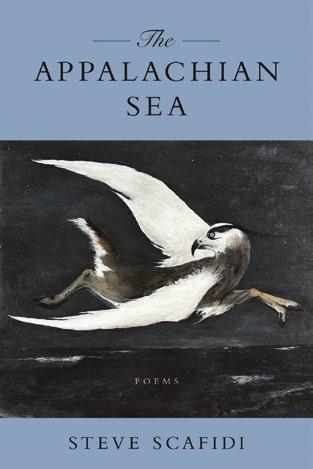
JULY 2025
72 pages, 6 x 9
978- 0- 8071- 8471- 4
Paperback $19.95, ebook available
LSU Press Paperback Original Poetry
Southern Messenger Poets
Dave Smith, Series Editor
The Appalachian Sea Poems
STEVE SCAFIDI
ALSO OF INTEREST
978-0-8071-5449-6
Paperback $20.95
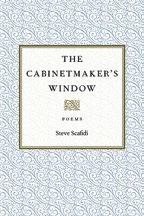
PRAISE FOR STEVE SCAFIDI
“[Here is] a poet long since come into his own but still growing and restless in the burgeoning of his enormous talent. Surpassing—or encompassing—Scafidi’s technical virtuosity, fertile imagination, and lyric sensibility, the poet’s great gift is empathy for his subject and for his reader. . . . Every Scafidi poem reveals a surprise.” Southern Humanities Review
“In Scafidi’s universe, it’s alright to be a little off- center, because it is in the common, in the everyday, that he finds dignity and communion.” Library Journal
“Scafidi’s poetry . . . musically and vividly reminds readers that creation is full of delights both large and small. It reminds us that life is short, that death is inevitable, and that the only mature responses to these hard facts are to be aware of beauty, meaning, pleasure, to take nothing for granted, to care deeply, and celebrate while we can.” Appalachian Journal
Steve Scafidi’s The Appalachian Sea explores the eponymous place of mountains and story, of rivers and magic, as well as of mortality, where people work and live and die. What began as an homage to the American painter Miles Cleveland Goodwin became a celebration of the spectral qualities of place and home. The artist’s gothic imagery of haints and dark orchards haunts the book, wherein the Shenandoah wends, old farmers toil, and ghosts wander a
land where change comes on like a flood. There is no escape from this spilling river, the “Appalachian sea,” yet for a while we get by and survive. These poems sing of the temporary persistence that makes what surrounds us beloved and strange.
STEVE SCAFIDI is the author of the poetry collections Sparks from a Nine-Pound Hammer, For Love of Common Words, The Cabinetmaker’s Window, and To the Bramble and the Briar. He works as a cabinetmaker and lives with his family in Summit Point, West Virginia.
Near the Holy Cross Abbey
That tall shy man flying through the air Leaping from the riverside
To coast above the water— And his bride also, Slowly flying just behind him— Were two blue herons
At the beginning of the world It seems. We disturbed them From their eggs and their peace.
A Tuesday at springtime
In the new century, much Like the last. Don’t worry, We’re leaving—come back.
By Stone and Needle
Poems
CATHERINE W. CARTER
“In these superb poems, Catherine Carter reveals another world, centered in nature, with a visual and verbal attentiveness that feels not so much observed as conjured, summoned in all its richness and mystery. As much as I admire Carter’s previous volumes, By Stone and Needle takes her poetry to a greater and singular level of craft and insight. Brilliant.”—Ron Rash
Shimmering to the pulse of the unseen, By Stone and Needle circles like a compass needle around the figure of the witch. Catherine Carter concocts a book of secular spells and incantations for engaging with, and meditating upon, a world in which all things are connected, in which symbol slides into literal, spirituality into science, exact observation into lamentation and love.
The poems in By Stone and Needle spin connecting threads between night sweats, witch drownings, creation stories, pedicures, goddesses—and, especially, between miraculously interconnected ecosystems and the forces that threaten them. Speakers encompass personae including lactobacilli bacteria, bodily yeasts, and the classical witch Medea, while elsewhere a contemporary version of the goddess Artemis appears in Appalachia. Carter’s poetic vision imbues everyday moments such as putting on a coat, piercing an ear, confronting racism and patriarchy, or eating onion slices with a new definition of magic as “the human thing.”
CATHERINE W. CARTER is the author of three previous poetry collections, most recently Larvae of the Nearest Stars, two chapbooks, and a co-translation of John Gower’s Middle English poem The Lover’s Confession. Her work has also appeared in Poetry magazine, Ploughshares, RHINO, and Best American Poetry.
. . . co-creating the world in concert with oxygen exchange, tectonic motion, that smashed and gashedged hubcap pinning down an immortal plastic bag, the gravity of the moon, whirligig beetles inscribing creek-skin with runes written in water, whatever God you say. Flood of protestors in the street’s torrent, choking on blazing air. A woman stirring cut onions over heat, changing them just enough to turn their burning tears to something a little more sweet. Fingers moving the pen, the keys, the lever, and the air and ground of our lives ever so slightly shifting in response, recreated (ever so slightly) anew. The fearful fact: it matters what you do. from “Choptank bluegills take part in the creation of the world”
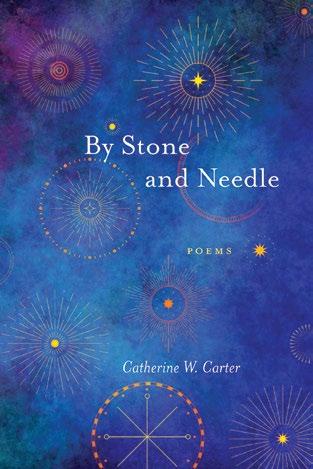
JULY 2025
128 pages, 6 x 9
978- 0- 8071- 8507- 0
Paperback $21.95, ebook available LSU Press Paperback Original Poetry
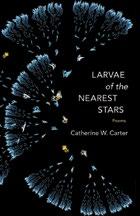
WINNER OF THE 2025 L. E. PHILLABAUM POETRY AWARD
The Southern Review publishes the best contemporary fiction, nonfiction, poetry, and translation by established and emerging writers. Read original and translated prose from writers like Grazia Deledda, Nick Fuller Googins, Mesha Maren, Yxta Maya Murray, Dina Nayeri, Peter Orner, Alejandro Puyana, and many others.
Recent issues include poetry by luminaries such as David Wojahn, Marilyn Nelson, Sharon Olds, Denise Duhamel, Alice Friman, Kwame Dawes, and David St. John, accompanying an array of exciting work by the nation’s top new writers, among
them Maggie Smith, Erika Meitner, Amaud Jamaul Johnson, Jose Hernandez Diaz, Charles Rafferty, and Danusha Laméris.
Since its inception in 1935, The Southern Review has been a significant presence in the contemporary literary landscape. Notable writers who appeared in its pages early in their careers are now among the nation’s most distinguished and important voices.
www.thesouthernreview.org
email: southernreview@lsu.edu (225) 578-6453 fax: (225) 578-6461
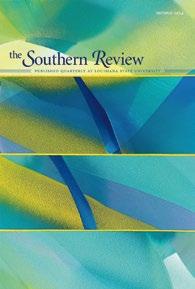
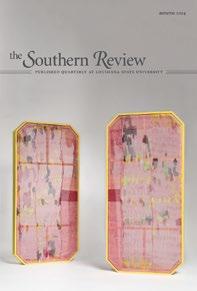

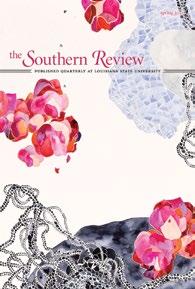
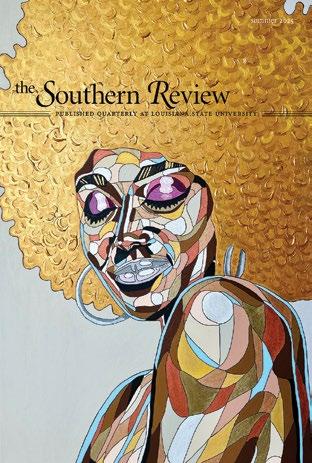
INDIVIDUAL SUBSCRIPTION RATES: Single Copy $15
One year (4 issues) $50
Two years (8 issues) $85
Three years (12 issues) $110
Digital Subscription, One year (4 issues) $30
Digital + Print Subscription, One year (4 issues) $60
INSTITUTIONAL SUBSCRIPTION RATES: Single Copy $30
One year (4 issues) $115
Two years (8 issues) $145
Three years (12 issues) $180
Please add $18 per year for international shipping.
The Southern Review is available electronically through Project Muse: http://muse.jhu.edu
Booksellers: Please contact The Southern Review to order ISSN 0038- 4534. Issues are published quarterly.
SALES INFORMATION
GENERAL INFORMATION
Requests for sales and discount information should be directed to our sales department (225-578-8282).
PRICES AND DISCOUNTS
Booksellers: Unless otherwise indicated, all books are subject to our trade discount schedule, a copy of which is available from our sales department. Books marked s are short-discount titles. For information regarding the LSU Press Agency Plan, please contact the sales department or a sales representative.
Libraries: Please contact our customer service department (800-848-6224) for the latest discount schedule. Prices, discounts, publication dates, and manufacturing specifications listed in this catalog are subject to change without notice.
LSU Press participates in the Cataloging-in-Publication Program of the Library of Congress.
SUBSIDIARY RIGHTS
Inquiries regarding subsidiary rights should be directed to McIntosh and Otis, 235 Main Street, Suite 318, White Plains, NY 10601
https://mcintoshandotis.com/ 212-687-7400 FAX 212-687-6894
SALES REPRESENTATIVES
DOMESTIC:
LSU Press is represented by Columbia University Press Sales Consortium.
Southeast: Catherine Hobbs Phone: 804-690-8529 | Fax: 434-589-3411 Email: ch2714@columbia.edu
Northeast: Conor Broughan Phone: 917-826-7676 | Email: cb2476@columbia.edu
Midwest: Kevin Kurtz
Phone: 773-316-1116 | Fax: 773-489-2941
Email: kk2841@columbia.edu
West: William Gawronski
Phone: 310-488-9059 | Fax: 310-832-4717
Email: wgawronski@earthlink.net
SALES REPRESENTATIVES (CONTINUED)
FOREIGN:
Canada: Ampersand | Phone: 866-736-5620
Fax: 866-849-3819 | Online: www.ampersandinc.ca
Canada (Orders): UTP Distribution | Phone: 800-565-9523 Fax: 800-221-9985 | Online: www.utpdistribution.com
Europe and all other regions: Mare Nostrum Group Phone: +44 (0)1423 562232 | Online: https://marenostrumgroup.co.uk.
DIGITAL REVIEW COPIES
Digital review copies of select titles are available for a limited review period at: https://www.edelweiss.plus/ Contact our sales department for additional information on digital review copies: 225-578-8282.
DESK COPY POLICY
If your bookstore has already placed an order for 10 or more copies of a title, ONE (1) free desk copy will be provided. To order please include the name of the bookstore, the number of books ordered, the name of the course, and your daytime phone number. A desk copy should not be requested if an examination copy has already been received.
EXAMINATION COPY POLICY
Qualified instructors of appropriate courses may request examination copies of books they wish to consider for classroom use (only three titles per instructor per semester, please). Paperback books are available free of charge upon receipt of a $6.00 per title shipping and handling fee. We will extend a 20% professional discount on cloth editions.
Prepayment (check, money order, VISA, Master Card, Amex, or Discover) must accompany your request and must include a shipping and handling fee of $6.00 for the first book plus $1.00 for each additional book ordered.
Requests must be made on departmental letterhead or from a university email address and include the title of the book, the name of the course, projected enrollment, your mailing address, and your daytime phone number. Please allow 4 weeks for delivery. Please mail examination copy requests to: Longleaf Services, Inc., 116 S. Boundary St., Chapel Hill, NC 27514-3808, fax to (800) 272-6817, or email to orders@longleafservices.org.
CONTACT INFORMATION
Orders and Inquiries
Orders and inquiries regarding stock availability, accounts, invoices, and shipping should be directed to our customer service department (800-848-6224)
Online Orders www.lsupress.org
Phone Orders (800) 848-6224
Fax Orders (800) 272-6817
RECENT PRIZEWINNERS


